2024 Best Online PhD in Sustainability [Doctorate Guide]
An online PhD in Sustainability is an interdisciplinary degree that prepares individuals to become innovative researchers in environmental sustainability and Earth sciences.

Countries and governments are putting the environment and climate change at the forefront.
Editorial Listing ShortCode:
In a sustainability PhD program, you can develop advanced knowledge and skills that can be integrated in a way that influences policymaking regarding environmental issues.

Universities Offering Online Doctorate in Sustainability Degree Programs
Methodology: The following school list is in alphabetical order. To be included, a college or university must be regionally accredited and offer degree programs online or in a hybrid format.
Antioch University
Antioch University offers a Ph.D. in Environmental Studies. To graduate, students must complete 69 semester hours, including a dissertation.
Those interested in the program must submit an online portfolio with an application, an essay, a resume, official transcripts, 3 letters of recommendation, and a writing sample. Applicants must also complete an admissions interview. Antioch University is accredited by the Higher Learning Commission.
Prescott College
Prescott College offers a Ph.D. in Sustainability Education. Students must complete 72 credit hours through three different phases and a final dissertation to graduate. To be eligible for the program, applicants must submit a list of references, a current resume, official transcripts, and a personal statement.
Prescott College is accredited by the Higher Learning Commission.
Saybrook University
Saybrook University offers a Sustainable Social Impact Doctor of Business Administration. Students must complete 51 credit hours to graduate. The program can be completed online and usually takes 3 years to complete. Those interested in the program may apply online through the school’s website. Admission counselors are available to help applicants.
Saybrook University is accredited by the Western Association of Schools and Colleges Senior College and University Commission.
University of Maryland Global Campus
The University of Maryland Global Campus offers an online Doctor of Business Administration program that focuses on sustainability. Students must complete a dissertation to graduate. Those interested in the program must submit official transcripts, a resume, 2 professional references, and a personal statement. A writing sample is optional but encouraged by the program’s admissions department.
The University of Maryland Global Campus is accredited by the Middle States Commission on Higher Education.
University of Wisconsin – Stevens Point
The University of Wisconsin—Stevens Point offers a Doctorate in Education in Educational Sustainability. Students must complete 54 credit hours to graduate. The program can typically be completed in 3 years. Applicants may apply online with all post-secondary transcripts, a letter of intent, a resume, and 3 references.
UW-Stevens Point is accredited by the Higher Learning Commission.
Online PhD in Sustainability Programs

When pursuing an online doctoral program in sustainability, there are a number of specializations within the sustainability scope you may encounter. Specializing your studies can allow you to develop more technical skills within your area of interest and may help you prepare for specific career goals.
Following a particular sustainability program involves research and in-depth comprehension of the topic on a global scale. Here are some sustainability PhD programs that you may want to pursue, depending on your personal interests and professional goals.
PhD in Sustainable Development
Sustainable development involves the advanced study of social, environmental, and economic sustainability and how critical policy can influence natural science issues. If you wish to be involved in challenging policies that concern and influence the future success of our planet, you might want to consider earning a PhD in Sustainable Development.
Studies in this specialization include economics, natural and social sciences, and sustainable development research. This specialization could be applicable to roles in academia, government, finance, or the private sector. Professionals in this area may work in logistics, in storage and distribution, or as sustainability managers.
PhD in Environmental Sustainability

A PhD in Environmental Sustainability trains you on how to develop, implement, and frequently assess policies related to sustainability.
You can learn how to properly address environmental challenges through applied research that looks across a variety of disciplines. Course topics can include environmental justice, urban systems, consumption, social cohesion and inequality, and sustainable enterprise and development.
This program often leads into a wide range of green careers in academia or in private or public sectors. Many professionals work with environmental science, environmental engineering, or policy management.
PhD in Sustainability Education

PhD candidates in sustainability education research the impact and benefits of educating people on sustainable practices.
You can learn how to encourage others to ask the fundamental questions that lead to addressing environmental and sustainability issues that concern our communities and our planet. This program encourages the development of global citizenship in students.
In a sustainability education program, you can study course topics related to educational administration, community development, advocacy, public relations, and politics. Professionals with this specialized training generally work in NGOs or charities. They may also work as environmental specialists, conservation scientists, or academic leaders.
Environmental Science and Sustainability Careers & Salaries
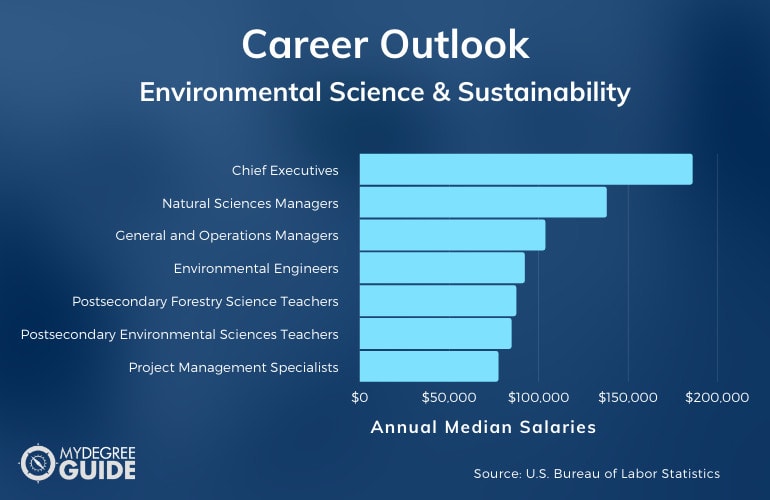
With environmental impact becoming an essential focus for both public and private organizations, jobs in sustainability have become ever more important as well.
According to the Bureau of Labor Statistics , rapid employment growth is expected for eco-friendly occupations over the next ten years. In addition, median averages for those working in sustainability occupations are also higher than the average for all occupations.
Sustainability roles are extremely diverse, and sustainability professionals can be found in nearly every sector. Your PhD program specialization can be defined around your specific career goals. Organizations are facing many sustainability issues today, and online doctorate programs in sustainability can train leaders to address the environmental responsibilities of individual companies.
Sustainability Doctorate Curriculum & Courses

A PhD in Sustainability is heavily research focused and often requires a dissertation. Depending on the specialization you choose to pursue, you may be enrolled in a variety of diverse courses in humanities, science, business, and engineering.
Here are some courses you may encounter:
- Fundamentals of Sustainability Science : You’ll learn how to conduct advanced, individual research on sustainable production, distribution, and consumption. Ecological economics is a primary focus in this course.
- Industrial Ecology : You’ll study the relationship between ecological and industrial systems and how they impact one another.
- Risk Analysis : This course helps you develop advanced skills in risk identification. You can also learn about the management of risk through a sustainability lens, including economic, social, and environmental impact.
- Economics of Sustainability : You’ll study the advanced micro and macroeconomics of sustainable systems and learn to use rigorous economic reasoning in your analysis and problem-solving of various topics.
- Sustainable Development : This course develops your knowledge of resource management, energy planning, and recycling for more efficient and sustainable community and cooperation development. This course develops your leadership skills for sustainable development roles.
- Policy Mechanisms : In this advanced course, you’ll learn how to properly address government and market failures that endanger sustainability. Using scientific evidence, you can learn to adjust and implement appropriate policy to help reduce global impact of problems.
- Professional Skills for Environmental Sustainability : Doctoral candidates develop advanced oral and written communication skills in this course, which prepares them for management, leadership, and lecture roles. They also learn how to compose and present professional reports.
- Research Design : In preparation for a dissertation, you’ll learn advanced research methods under the sustainability lens.
- Sustainable Water : Water purification and water preservation are essential for global environmental sustainability. You’ll use this focus and an engineering lens to present solutions for real-world case studies.
- International Development and Sustainability : You’ll learn about global development and industrial advancement that does not compromise the environment, and you’ll learn how to create innovative solutions to reach sustainability goals for development projects.
If your PhD requires a dissertation, the later years of your program would likely focus on your research development.
Sustainability PhD Admissions Requirements

When applying for a PhD program, there are often strict guidelines and requirements that accompany the application packet. It’s beneficial to thoroughly research the particular admission requirements of the school you are interested in.
Here are some admission requirements you may encounter:
- GRE or GMAT scores (only some schools require them)
- Official transcripts of all undergraduate and graduate work
- Minimum GPA of 3.0, on average
- Letters of professional recommendation
- Writing sample that includes your educational objectives
Some schools also recommend that you include a CV that demonstrates your work or research experience in sustainability.
Doctoral Degrees in Sustainability Accreditation
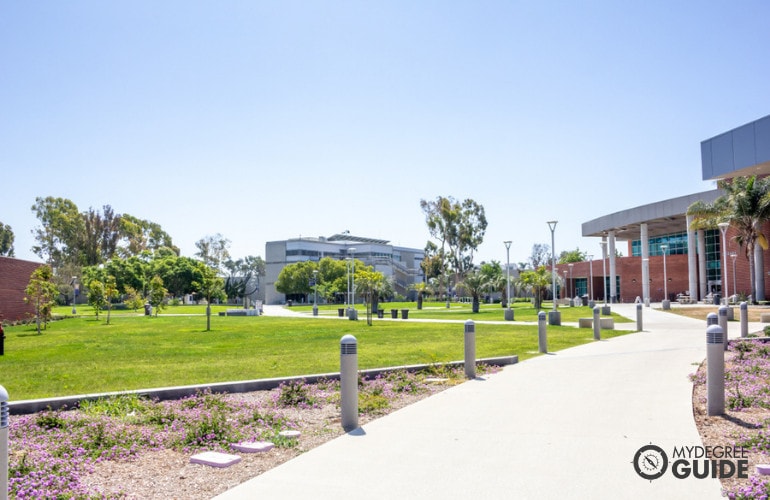
Accreditation for your doctoral degree is essential. Not only is it often necessary for employment after graduation, but it’s also vital when it comes to receiving financial aid or being able to transfer your credits to change programs or schools.
Online programs are especially at risk of being falsely accredited by fraudulent institutions. You can visit the website for the Council for Higher Education Accreditation (CHEA) to verify the registered status of your program or school of interest.
Regional accreditation ensures you are attending a school with high academic standards, and it can also protect you when it comes to any employment requests for accreditation.
Financial Aid and Scholarships

Doctorate programs can be an expensive venture, but there are many financial assistance opportunities that you may have the chance to qualify for.
You may find funding through scholarships, research councils, charities or foundations related to sustainability, or even grants given to you by your employer. Some schools even fully fund doctoral studies through their research budget.
You can begin your search for government aid by filling out the Free Application for Federal Student Aid (FAFSA) . Federal loans for doctorate students can be immense, and FAFSA simplifies the process, enabling you to see how much aid you qualify for.
What Is a PhD in Sustainability?
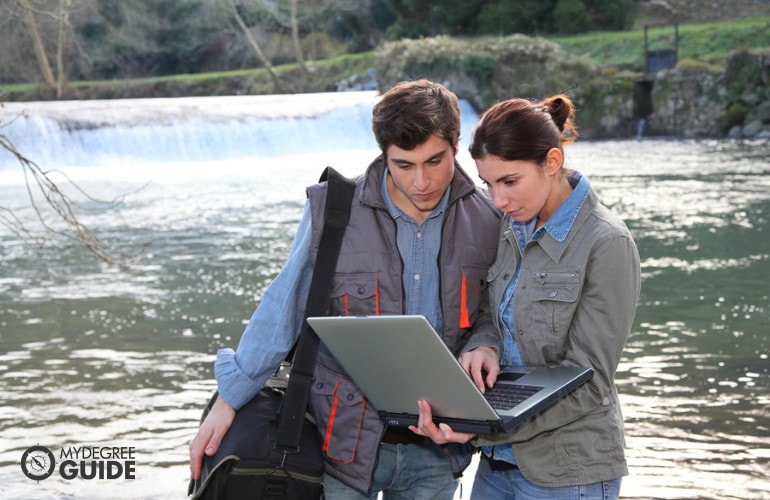
A PhD in Sustainability is a doctoral program that helps you develop an advanced understanding of sustainability practices and your global citizenship responsibilities. It also allows you to find an area of focus related to your environmental education passions.
A Doctor of Philosophy (PhD) in Sustainability is a research-based program that uses scientific evidence to develop sustainability solutions on a nationwide and global scale. This doctoral degree can help prepare you for leadership and sustainability management roles in the green sector of various industries.
What Can I Do with a PhD in Sustainability?

A doctorate degree in sustainability can help you develop advanced qualifications for leadership and management roles in the green sector.
Sustainability is necessary in nearly every industry. Many sustainability experts work as natural sciences managers, environmental engineers, postsecondary teachers, environmental scientists, and conservation scientists, among other roles.
The Bureau of Labor Statistics states that wages related to environmental protection are well above the average wage for all occupations. Holding a doctorate can often increase your earning potential as well.
Can You Get a PhD in Sustainability Online?

Yes, you can get a PhD in Sustainability online. Online sustainability degree programs allow for flexible enrollment and can minimize the financial burden of residency or commuting.
Online programming can also offer more convenient scheduling for working professionals. So, completing your doctoral degree online may enable you to pursue your degree while continuing your employment. Credible online degrees, such as an online masters in sustainability or an online PhD in Sustainability, can be earned at accredited universities and institutions.
How Long Does It Take to Get a Doctoral Degree in Sustainability Online?
In general, a PhD often takes 3 to 5 years to complete. This timeframe can vary depending on the number of credit hours required and how long it takes you to complete your dissertation.
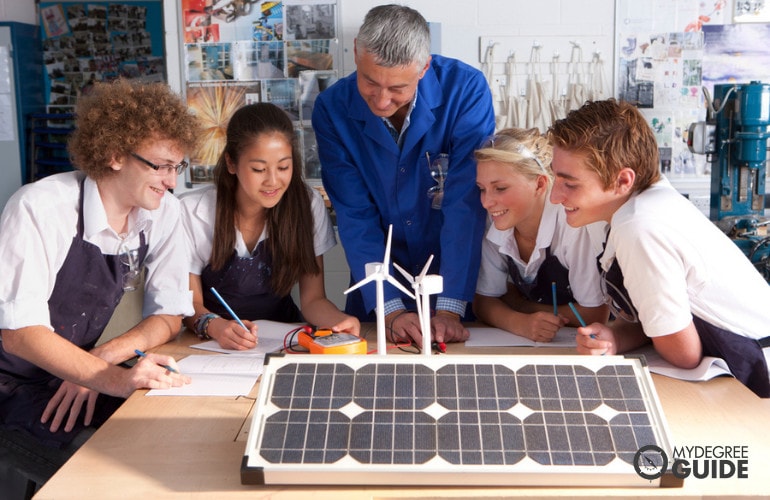
If there is no dissertation requirement, a doctoral program can generally be completed in 3 years with full-time study. Attending part-time can lengthen the amount of time it takes to obtain your PhD.
Is a Doctorate in Sustainability Worth It?
Yes, a doctorate in sustainability is worth it for many students. The Bureau of Labor Statistics states that employment in the environmental protection sector is seeing significant growth as sustainability becomes a concern across nearly every industry.
For instance, both natural science managers and conversation scientists are projected to see 6% job growth over the next ten years. Environmental scientists and specialists are expected to experience 8% job growth (Bureau of Labor Statistics).
Employment for postsecondary teachers is projected to increase 12% over the same time period. The Bureau of Labor Statistics also states that individuals with a doctorate see the lowest unemployment rate.
Getting Your PhD in Sustainability Online

Sustainability practices and strategies have become a central focus across nearly every industry. Getting your PhD in Sustainability online can help you develop advanced skills and expertise in the field, and doctoral qualifications can help you pursue leadership roles in the green sector.
Pursuing your doctorate online through an accredited university allows you the flexibility to further your educational career alongside your personal and professional obligations. You can begin exploring online doctoral degrees today to find the sustainability program and specialization that best align with your professional goals.


Doctor of Philosophy in sustainability
About the doctor of philosophy degree.
The PhD in sustainability, offered only on ASU’s Tempe campus, engages scientists and leaders in research to investigate the urgent sustainability challenges of this century.
The flexible, interdisciplinary nature of the program allows students to focus on problems of interest to them, drawing upon relevant knowledge from a variety of disciplines.
Students may be admitted to the PhD program with either a bachelor’s or a master’s degree from a regionally accredited institution or the equivalent of a US bachelor’s degree from an international institution officially recognized by that country.
Learning outcomes
PhD graduates will have an advanced understanding of the dynamics of coupled socioecological systems and will be able to lead others in research and providing adaptive solutions to specific sustainability challenges. In addition to the common learning outcomes, PhD students will be able to:
- Understand the concepts and methods of a number of critical disciplines bearing on the sustainability of systems at different spatio-temporal scales.
- Lead others in applying these concepts and methods to developing sustainable strategies for water, land, air, and urban management at the local and global level.
- Lead others in the analysis and design of the built environment and institutions’ policies, regulations, and technologies to support sustainable development.
Requirements and electives
Courses and electives, core courses.
- SOS 510 – Perspectives on Sustainability
- SOS 520 – Research Design
- SOS 525 – Social-Ecological-Technical Systems: Domains & Interfaces
- SOS 589 – Community of Scholars (taken twice)
Solutions workshops
Solutions workshops are listed under SOS 594 and are designed to provide students with experience solving real-world problems that involve multiple sustainability challenges. As such, they will be problem-based and not specifically attached to one of the main themes.
Some example workshops include:
- SOS 594 – Sustainability Short Form Documentary
- SOS 594 – Sustainable Development in Action
- SOS 594 – Sustainable Neighborhoods for Happiness
- SOS 594 – Urban Sustainability – Best Practices/Case Studies
- SOS 594 – Operationalizing Corporate Sustainability through ESG Programs
Elective courses
Students may choose courses from any discipline at ASU that relate to their research project or dissertation. Electives must be approved by a student’s supervisory committee.
Research and dissertation
At least 12 credits of the approved PhD program of study must be SOS 792 Research and at least 12 credits must be SOS 799 Dissertation. After completion of the dissertation, the student must pass an oral examination in defense of the dissertation.
- SOS 792 – Research
- SOS 799 – Dissertation
Exams and Dissertation
When students have completed the coursework, they must pass a comprehensive examination and begin a prospectus (proposal) for their dissertation. After passing the prospectus defense, students enter candidacy. The culminating experience for the doctoral degree program is publication of the dissertation, accompanied by a dissertation defense. The non-coursework portion of the program usually lasts 2 years.
Have a question about the PhD in sustainability?
Ask us about sustainability at ASU and the diverse environmental, social, and economic focused degrees offered by the School of Sustainability!
Select Section
Jump to navigation
Community Development and Applied Economics
- Undergraduate Programs
- Community and International Development
- Community Centered Design Major
- Community Entrepreneurship
- Public Communication
- CDAE Minors
- Internships
- Dual Degree Program - Vermont Law & Graduate School
- Graduate Programs
- Master of Science in CDAE
- Master of Public Administration
- Master of Science in CDAE - Accelerated
- Master of Public Administration - Accelerated
- Peace Corps Coverdell Program
- Certificate of Graduate Studies in Community Resilience and Planning
Ph.D. in Sustainable Development Policy, Economics and Governance
- Courses in CDAE
- Faculty and Staff
- Advising and Student Support
- Internship Program
- Peace Corps at UVM
College of Agriculture and Life Sciences

The Sustainable Development Policy, Economics and Governance (SDPEG) Ph.D. program offers a transdisciplinary doctoral education in the policies, practices and theories of sustainable development. By offering a core curriculum that includes applied policy and economic analysis, governance and process design, social science methods, and professional skills development, the program produces graduates capable of conducting original, applied research that is designed to support sustainability and resiliency across social, ecological, and technical systems.
This degree will prepare students to assume positions as policy leaders in government, higher education, public and private sector organizations, non-governmental organizations, and research institutes with the expertise and vision to inform local, state, national, and international policy.
Asim Zia, Director and Professor of Public Policy and Computer Science
Travis Reynolds, Associate Professor
Dan Tobin, Associate Professor
Trisha Shrum, Assistant Professor
David Conner, Professor
Josh Farley, Professor
Sarah Heiss, Associate Professor
Qingbin Wang, Professor
Anaka Aiyar, Assistant Professor
Joe Ament, Assistant Professor
Kate Mays, Assistant Professor
Benjamin Dangl, Lecturer
Edward McMahon, Adjunct Associate Professor
Pablo Bose, Professor
Stephanie Seguino, Professor Emerita
Gregory Rowangould, Associate Professor
Donna Ramirez-Harrington, Associate Professor
Brian Beckage, Professor
Elizabeth Doran, Research Assistant Professor
Jane Kolodinsky, Professor Emerita
Christopher Koliba, Professor Emeritus
Kelsey Gleason, Assistant Professor
Dana Rowangould, Assistant Professor
Degree Requirements
Milestones, guidelines and timeline to degree completion.
Minimum Degree Requirements
The degree requires a total of 75 credits. A minimum of 51 credits must be completed in residence. The residency requirement is completed by courses that:
1. are taken for graduate credit through the University of Vermont, and
2. are taken after the student has been admitted to the Graduate College.
The program’s course of study includes:
1. 15-credit core 2. Up to 24 transfer credits from prior master’s degree (12 out of 24 transferable credits must meet pre-requisite requirements in statistical methods, research methodology, economics and policy process theory) 3. 15 credits of a pre-approved Certificate of Graduate Study or a customized sequence of advisor-approved graduate level elective courses 4. 21 dissertation research credits
15 credit core includes:
Requirements for Advancement to Candidacy for the Degree of Doctor of Philosophy
Students will advance to candidacy following completion of the core curriculum, passage of a written and oral comprehensive exam, passage of the written dissertation and oral dissertation defense exam, and acquisition of teaching experience in the field of sustainable development policy, economics and governance. A GPA of 3.0 must be maintained.
Tuition Information
International Student Admissions
Funding Opportunities
Meet the Students
Request Information
Application Procedures & Admissions Requirements
We are no longer accepting applications for Fall 2024. Please check back in September 2024 for updated admissions guidelines.
ADMISSIONS REQUIREMENTS INCLUDE:
- Master’s degree in public policy, public administration, economics, natural resources, engineering, ecology, food systems, political science or a closely related field, including social sciences, professional fields, and STEM
- Completion of graduate level course in statistical methods
- Completion of graduate level course in research methodology
- Completion of graduate level course in economics
- Completion of graduate level course in policy process theory
- Resume or Curriculum Vitae
- Applicants must submit evidence of experience and success in the research process such as writing sample(s), and/or evidence of research experience(s) (e.g., theses, term papers, class projects, research reports and/or other descriptions of past research experience from academic or professional lives).
- The Graduate Record Exam (GRE) is optional.
- For international students whose native language is not English or who have not completed undergraduate or master’s degrees in English, scores from the Test of English as a Foreign Language (TOEFL), the English Language Testing System (IELTS), or Duolingo must be submitted.
DISCOVER THE INNOVATIVE WORK WE ARE DOING ON:
- Air, Food & Water
- Art & Culture
- Cities & Towns
- Climate Change
- Energy & Technology
- Environmental Justice
- Law & Policy
- Nature & Conservation
- Sustainable Business

Ph.D. in Environment and Sustainability
Our Environment and Sustainability Ph.D. equips students with diverse perspectives to develop profound new ideas, knowledge and approaches to the most important concerns facing people and the planet. The program provides training to develop deep understandings of the structures of current environment and sustainability issues today and to develop analytical research to address them. This requires learning in multiple disciplines and how they, together, can better provide greater knowledge to bear to the social, environmental, political, scientific and economic factors creating the situation we face today. Our goal is to prepare students for a range of careers in academia, as well as public and private sectors.
Climate Strategies
Talking solutions with Marilyn Raphael, director of UCLA’s Institute of the Environment and Sustainability

Dangerous combination of extreme heat and smoke affected 16.5 million Californians
“as a passionate environmentalist and social justice organizer, students with diverse views helped me value mainstream and economically-framed solutions”.
Cassie Gardener-Manjikian
Take the next step
How to Apply Learn more
Sustainability Doctor of Philosophy (Ph.D.) Degree

Request Info about graduate study Visit Apply
The Ph.D. in sustainability fosters innovation and creativity in solving real-world challenges within social, economic, technological, and business realms. In this inherently interdisciplinary program, you’ll become part of a network of academics from across RIT who are working to optimize sustainable systems and practices in engineering, manufacturing, energy, education, and more.
STEM-OPT Visa Eligible
Overview for Sustainability Ph.D.
Our approach to sustainability means working in the broader context of environmental assessment, economics, and policy. Each faculty member in the Golisano Institute for Sustainability sponsors a select number of students for specific research projects, with the scope varying from fundamental science to applied engineering to corporate sustainability applications. On acceptance into a sponsored research project, you will receive a fully-funded education, a stipend to help with living expenses, your own office space, and the time to develop your technical expertise in sub-areas dependent on your research.
In the sustainability Ph.D. program, you’ll have the opportunity to learn from areas across the entire university to develop your own innovative approach to the field, building off of methodologies such as life cycle assessment, environmental risk and impact assessment, design for the environment, pollution prevention, closed-loop supply chain management, and product life assessment. Moreover, you’ll work side-by-side with our world-renowned faculty who are avid researchers in diverse areas including biofuels, transportation, energy policy, resource recovery, smart products and systems, and more.
The sustainability Ph.D. helps you think innovatively about how sustainability can positively impact systems all over the world through big-picture solutions, from training future business leaders to maximizing natural resources. You don’t need a background in sustainability to apply to this program; you just need a desire to create positive change in the world. We bring in students of all ages, from all backgrounds—from biotechnology to business—and from all over the world. You’ll also find a wide range of experience—many of the program’s students have more than 10 years of career experience and/or education.
The faculty are well-known scholars and active researchers who not only bring their knowledge into the classroom but also directly involve students in their scholarship. This work includes a wealth of hands-on experience in our impressive research facilities , including a 75,000-sq.-ft., LEED Platinum certified research building with over nine labs and six technology testbeds. With this level of experience, you’ll be prepared for diverse academic and industry jobs where you can make an impact on the way the world views and utilizes sustainable practices, from the macro to the micro.
RIT's Sustainability Ph.D.
With the sustainability Ph.D.'s integrative curriculum, you will develop a deep foundation in sustainability science, sustainable systems, risk analysis, and more. You can also choose several electives from across RIT's colleges—from Computational Modeling and Simulation to Principles of Statistical Data Mining—to tailor your degree and create interdisciplinary relationships throughout the university.
Through your sponsored research project, you’ll have the opportunity to make novel and impactful contributions to the development and understanding of sustainable technologies. Recent dissertation examples include:
- Implications of Consumer Lifestyle Changes and Behavioral Heterogeneity on U.S. Energy Consumption and Policy
- Criticality of Byproduct Materials: Assessing Supply Risk, Environmental Impact, and Strategic Policy Response for Tellurium
- Development of an Integrated Reformer and Fuel Cell System for Portable Power Applications
Sustainability Research
Sustainable energy.
- Photovoltaics
- Energy supply/demand models
- Energy policy
Circular Economy
- Life cycle assessment
- Electronic waste and battery recycling
- Waste-to-energy processes
- Food waste management
- Remanufacturing
Sustainable Urban Systems
- Smart Cities
- Transportation systems analysis
- Food Waste Management
- Food-Energy-Water Nexus
Sustainability Resources: RIT Advances Global Sustainability
Partnering locally and internationally with the communities in which we are engaged, RIT is continuing to advance sustainability efforts and build resiliency at home and around the world. Rochester, NY, is a hub for sustainability professionals and home to rich natural resources, such as fertile farmland and the nearby Finger Lakes. Many of our students share their passion for sustainability with the local community by volunteering on projects connected to K-12 education, community gardens, farmer’s markets, and more. In addition, you will connect with the global sustainability community by attending and presenting at professional conferences all over the world.
Students are also interested in: Sustainable Systems MS

Eric Williams

Callie Babbitt

Nathan Williams
Featured Work
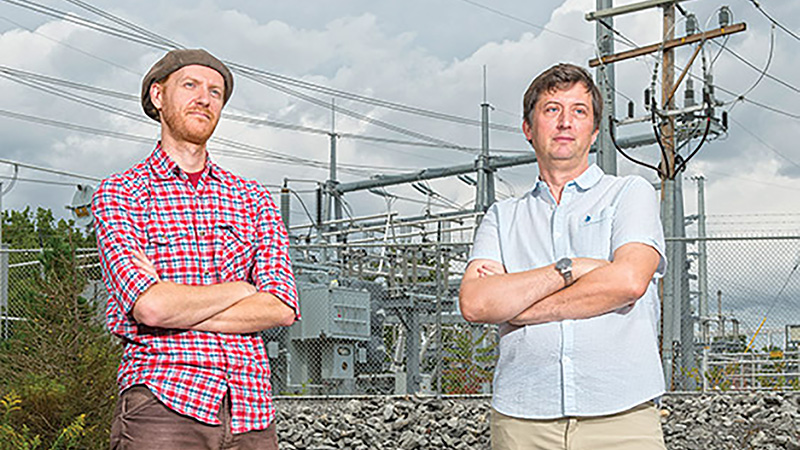
Does energy storage make the U.S. electric grid cleaner?
Dr. Eric Williams
In brief: Project: “How much wind and solar are needed to realize emissions benefits from storage?”
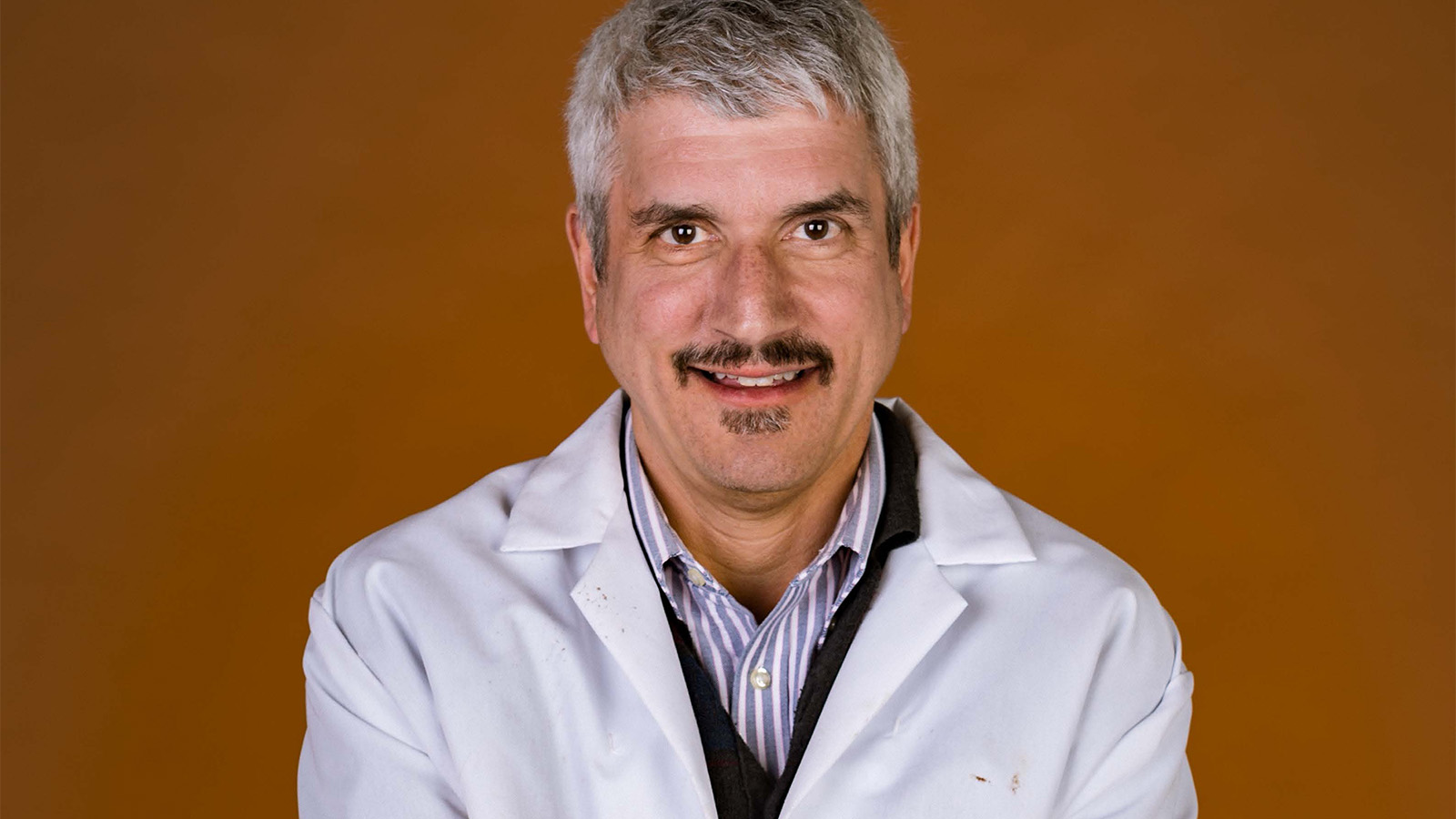
Can paper waste be used to make black ink?
Dr. Thomas A. Trabold
In brief: Project: “Waste Paper Derived Biochar for Sustainable Printing Products”
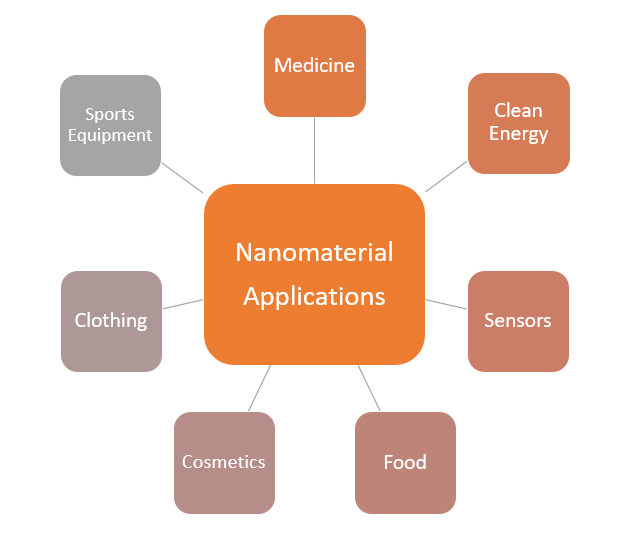
Nanomaterials: To use or not to use
Dr. Elizabeth Moore ’19
The following learning module was created by Dr. Elizabeth Moore '19 as a student for public teaching use.
Featured Profiles
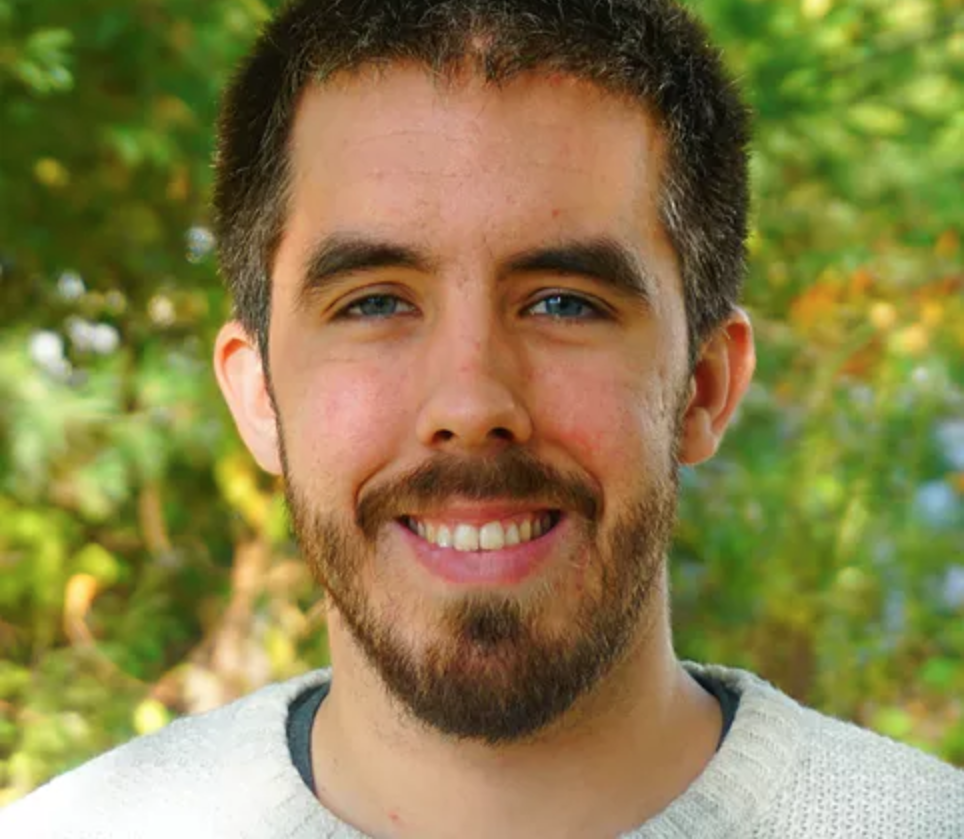
Jaime Sanchez Ferragut Ardura '17
"GIS taught me to think critically, to always look for ways to improve how something is done. One of the best things for me was the close relationships I formed with my instructors. I really felt that...
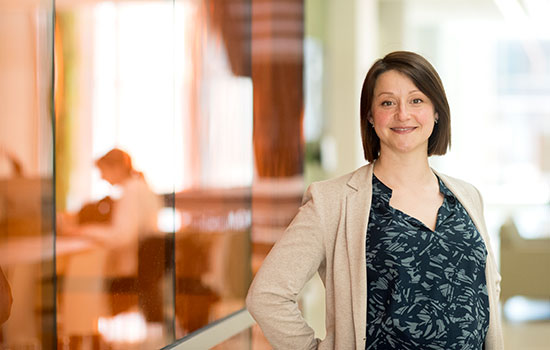
Dr. Jennifer Russell '18
"In GIS and RIT, I found a dedicated institute intensely focused on research into sustainability issues."
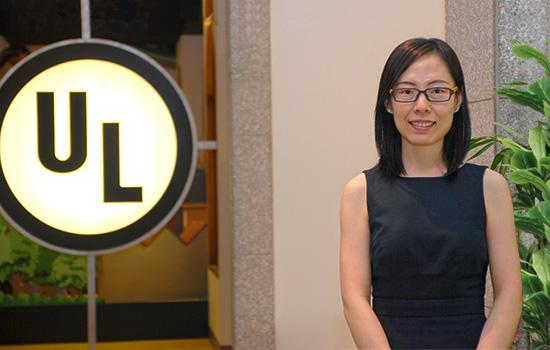
Dr. Xue Wang '13
"The most important career skill I gained at GIS is the conducting of environmental impact assessment of products, processes and systems. Other skills that I found very useful include life cycle...
Latest News
April 4, 2024
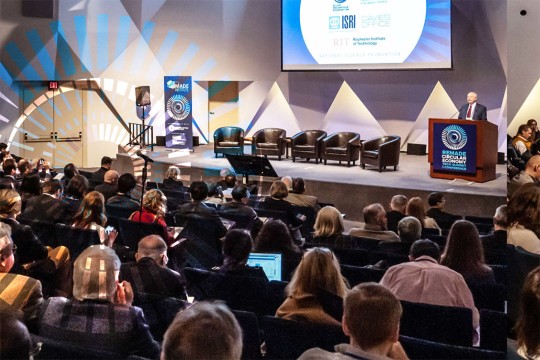
REMADE to host conference in D.C.
The Rochester Beacon talks to Nabil Nasr, associate provost and director of Golisano Institute for Sustainability, about the conference.
March 21, 2024
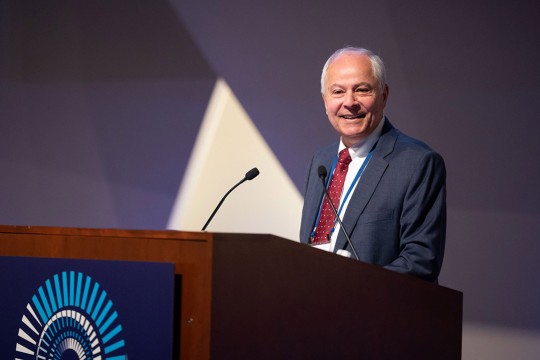
REMADE Institute to lead 2024 circular economy tech summit in D.C. next month
A national institute, led in part by RIT, next month is hosting the 2024 REMADE Circular Economy Technology Summit & Conference in Washington, D.C., highlighting emerging strategies and technologies to accelerate the adoption of a circular economy.
March 8, 2024
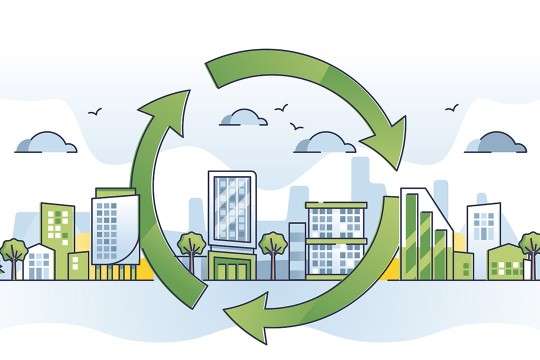
Pollution Prevention Institute at RIT accepting Community Grants Program applications
The program, founded in 2008, is part of the NYSP2I’s ongoing efforts to make the state more sustainable for workers, the public, the environment, and the economy through pollution prevention.
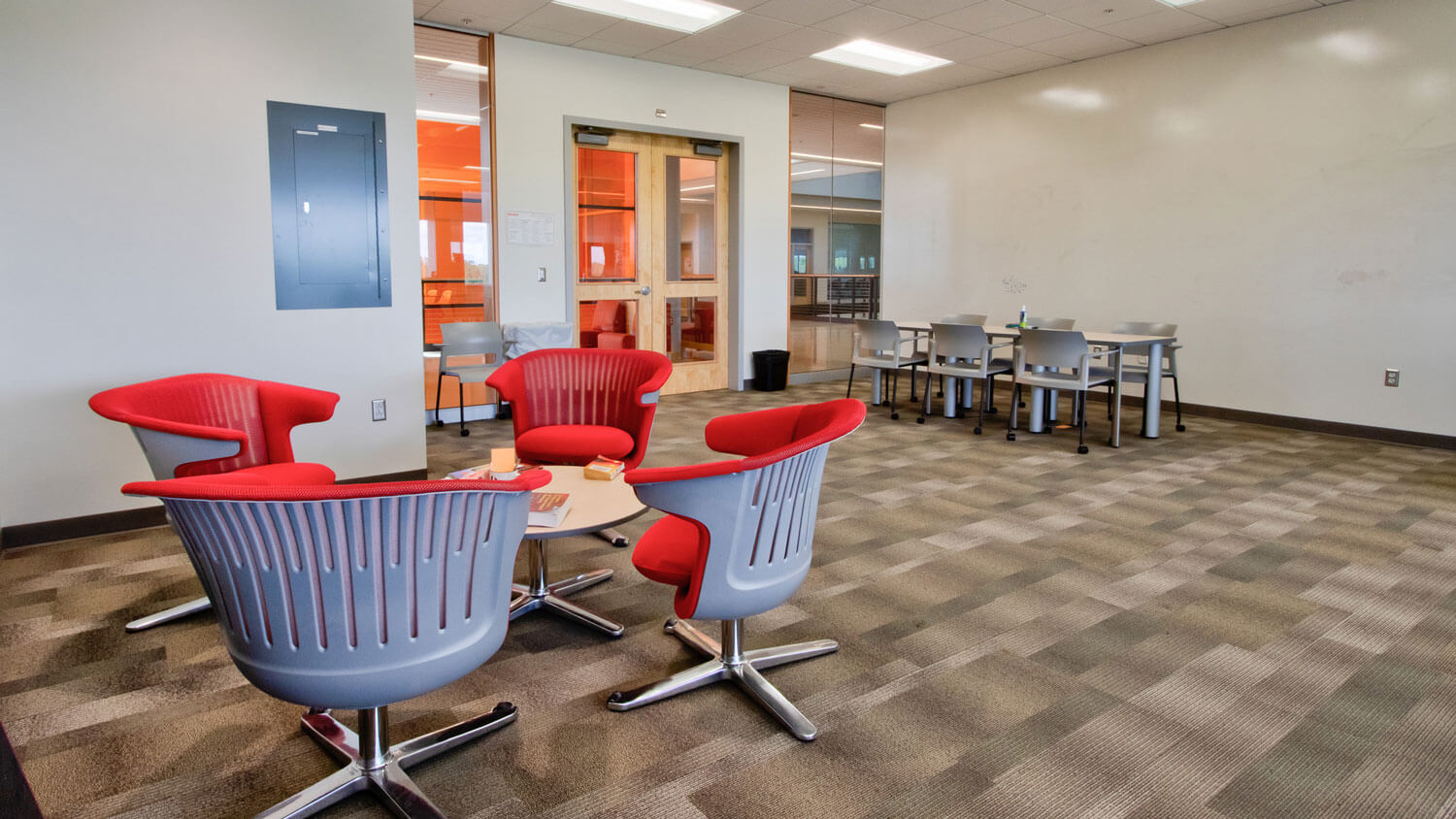
Curriculum for 2023-2024 for Sustainability Ph.D.
Current Students: See Curriculum Requirements
Sustainability, Ph.D. degree, typical course sequence
Admissions and financial aid.
This program is available on-campus only.
Full-time study is 9+ semester credit hours. International students requiring a visa to study at the RIT Rochester campus must study full‑time.
Application Details
To be considered for admission to the Sustainability Ph.D. program, candidates must fulfill the following requirements:
- Complete an online graduate application .
- Submit copies of official transcript(s) (in English) of all previously completed undergraduate and graduate course work, including any transfer credit earned.
- Hold a baccalaureate degree (or US equivalent) from an accredited university or college.
- A recommended minimum cumulative GPA of 3.0 (or equivalent).
- Submit a current resume or curriculum vitae.
- Submit a statement of purpose for research which will allow the Admissions Committee to learn the most about you as a prospective researcher.
- Submit two letters of recommendation .
- Entrance exam requirements: None
- Submit one writing sample .
- Submit English language test scores (TOEFL, IELTS, PTE Academic), if required. Details are below.
English Language Test Scores
International applicants whose native language is not English must submit one of the following official English language test scores. Some international applicants may be considered for an English test requirement waiver .
International students below the minimum requirement may be considered for conditional admission. Each program requires balanced sub-scores when determining an applicant’s need for additional English language courses.
How to Apply Start or Manage Your Application
Cost and Financial Aid
An RIT graduate degree is an investment with lifelong returns. Ph.D. students typically receive full tuition and an RIT Graduate Assistantship that will consist of a research assistantship (stipend) or a teaching assistantship (salary).
Additional Information
Prerequisites.
Applicants must have completed at least two science courses, one calculus course, and one statistics course.

Doctoral (PhD)
I'M READY TO APPLY I WANT TO LEARN MORE
The 2023 PhD cohort next to Douglas Lake at the University of Michigan Biological Station.
Through the research-based doctoral program in Environment and Sustainability, students may choose between a highly specialized course of study or one that broadly addresses complex, interdisciplinary issues.
It is strongly recommended that Ph.D. applicants contact SEAS faculty members prior to submitting an application. It is important to establish a connection with faculty members to discuss mutual research areas. These interactions are helpful in determining fit with our faculty and SEAS community. Faculty research profiles and their contact information can be found here .
Each student's course of study is tailored to their scholarly interests and guided by their faculty chair and committee. Broad areas of specialization reflect the expertise and research interests of faculty.
The doctoral program's goal is to develop the creative abilities of exceptional students, thereby training them for independent work that contributes to original research and scholarship at the forefront of their chosen fields. Students will become leaders in research, teaching and training others, and developing the scientific knowledge base needed to formulate policies and practices that help sustain natural resources.
Program Milestones
- Upon admission, you are assigned an advisor and faculty member(s) to serve on your interim Guidance Committee.
- In your first year, you prepare a "course of study" document that will guide your coursework and scholarly development.
- By the end of your second year, you will complete your qualifying exam and advance to doctoral candidacy.
- By the end of your fifth semester, you will submit your full dissertation proposal.
- By the end of your fifth year, you will defend your dissertation.
Your PhD will be granted by the Horace H. Rackham School of Graduate Studies . The school's Doctoral Handbook provides key information, such as a timeline and outline of expectations and requirements. For more information, contact [email protected] .
DOCTORAL FORMS AND MATERIALS

Staff and Affiliates Directory
- Centers & Programs
Ph.D. in Sustainable Development
The sustainability of development presents some of the most important policy challenges concerning the future of our planet, and it requires an interdisciplinary approach involving the social, natural, engineering, and health sciences. The PhD in Sustainable Development includes a set of rigorous core requirements in the social and natural sciences designed to provide a deep understanding of the interaction between natural and social systems, and provides students with the flexibility to pursue in-depth research in a broad variety of critical policy areas. No other doctoral program produces graduates with the unique combination of diverse skills and deep insight into the most challenging problems of future human welfare. Together with experts and faculty at Columbia, you’ll conduct research in a wide variety of areas, including climate change and its social consequences, causes and solutions to extreme poverty, energy systems, agricultural transitions, water resources, and more.
UNIT HEAD(S)

John Mutter

- Aviation and Astronautical Sciences
- Computer Science, Artificial Intelligence and Data Science
- Construction and Facilities
- Critical Infrastructure
- Cyber & Information Security
- Cyberpsychology
- Engineering
- Engineering Technologies
- Intelligence and Global Security Studies
- Management of Technology
- Occupational Safety and Health
- Uncrewed Systems
- Doctoral Degrees
- Master's Degrees
- Bachelor's Degrees
- Online Programs
- Associate Degrees
- Certificates
- Minor Degrees
- Summer Programs
- STEM Events
- Webinars and Podcasts
- Master's
- Undergraduate
- Transfer Students
- Military and Veterans
- International Students
- Admissions Counselor
- Capitol Connections
- Accepted Students
- Project Lead the Way
- Builder Culture
- Campus Life
- Clubs and Organizations
- Centers and Labs
- Online Classes
- The Capitol Commitment
- Top Employers
- Co-ops and Internships
- Professional Education
- Find a Mentor
- Career Services
- Capitol Online Job Board
- Recruiters and Employers
- Why Capitol Tech
- At a Glance
- Mission, Vision and Goals
- Diversity, Equity and Inclusion
- Washington, D.C.
- Capitol History
- Capitol Partners
- News and Events
- Visitors/Campus
- Accreditation
- Recognitions & Awards
- Current Students
- Faculty & Staff
- Alumni & Giving
- News & Events
- Capitology Blog
- Maps / Directions

- Degrees and Programs
Doctor of Philosophy (PhD) in Sustainability
- Request Information
Earn a doctorate degree in Sustainability, help lead innovation in a growing industry
Tremendous career opportunities exist in multiple government agencies and industries who are reporting significant workforce shortages of technical management personnel with a doctoral degree and experience in sustainability and how to efficiently manage resources. Moreover, the shortage is growing each year. This program is in response to that need. The Ph.D. in Sustainability degree is for new doctoral graduates and non-traditional students (i.e., experienced personnel) who desire to advance in their careers by gaining senior level skills in government and industry related directly and indirectly to sustainability technologies.
Capitol Technology University’s online PhD in Sustainability degree is a unique program designed to meet the long-standing needs of managing our resources efficiently, effectively and with sustainability. This degree is not an environmental science degree or environmental in focus. The focus is technology in using science and technology is reducing resource demand, the reliability of what we use and the engineering to deliver on real improvements. Currently wind turbine blades only are usable for 10 years, then buried until a solution of how to recycle material is not able to be used with current knowledge. Sustainable means designing turbine blades to last considerably longer, using materials that can be recycled and supporting a net zero carbon environment.
Why Capitol?
Learn around your busy schedule
Program is 100% online, with no on-campus classes or residencies required, allowing you the flexibility needed to balance your studies and career.
Proven academic excellence
Study at a university that specializes in industry-focused education in technology fields, with a faculty that includes many industrial and academic experts.
Expert guidance in doctoral research
Capitol’s doctoral programs are supervised by faculty with extensive experience in chairing doctoral dissertations and mentoring students as they launch their academic careers. You’ll receive the guidance you need to successfully complete your doctoral research project and build credentials in the field.
Key Faculty
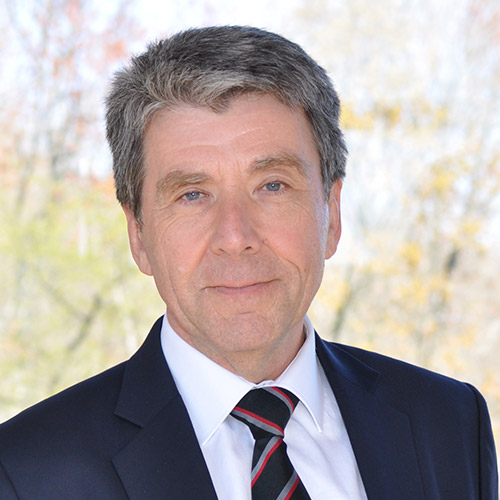
Associate Chair, Director of Engineering Labs
Degree Details
This program may be completed with a minimum of 60 credit hours, but may require additional credit hours, depending on the time required to complete the dissertation/publication research. Students who are not prepared to defend after completion of the 60 credits will be required to enroll in RSC-899, a one-credit, eight-week continuation course. Students are required to be continuously enrolled/registered in the RSC-899 course until they successfully complete their dissertation defense/exegesis.
The PhD program offers 2 degree completion requirement options.
- Dissertation Option: the student will produce, present, and defend a doctoral dissertation after receiving the required approvals from the student’s Committee and the PhD Review Boards.
- Publication Option: the student will produce, present, and defend doctoral research that is published as articles (3 required) in peer reviewed journals identified by the university and the student’s Committee. Students must receive the required approvals from the student’s Committee and the PhD Review Board prior to publication.
Prior Achieved Credits May Be Accepted
PhD in Sustainability Courses - 60 credits
Upon graduation, graduates will be able to:
- Execute a plan to complete a significant piece scholarly work in sustainability
- Utilize their knowledge and skills in Sustainability to create and implementation solutions to a wide range of global situations
- Demonstrate advanced knowledge and competencies needed for the future in sustainable problems
- Evaluate the need for the applications of Sustainability
- Recognize areas that needs sustainable adaptations
Tuition & Fees
Tuition rates are subject to change.
The following rates are in effect for the 2024-2025 academic year, beginning in Fall 2024 and continuing through Summer 2025:
- The application fee is $100
- The per-credit charge for doctorate courses is $950. This is the same for in-state and out-of-state students.
- Retired military receive a $50 per credit hour tuition discount
- Active duty military receive a $100 per credit hour tuition discount for doctorate level coursework.
- Information technology fee $40 per credit hour.
- High School and Community College full-time faculty and full-time staff receive a 20% discount on tuition for doctoral programs.
Find additional information for 2024-2025 doctorate tuition and fees.
Need more info, or ready to apply?

DPhil in Sustainable Urban Development
- Entry requirements
- Funding and costs
College preference
- How to apply
About the course
The Doctor of Philosophy (DPhil) in Sustainable Urban Development is a part-time doctoral programme that provides outstanding students an opportunity to pursue in-depth and rigorous research about the pressing challenges of urban sustainability and the processes of environmental, economic, and social development in urban environments around the world.
Students admitted to the programme are usually motivated to undertake detailed research in preparation for an academic career and other research-intensive occupations; to have a substantial impact on future policy-making processes; or to pursue and/or advance their professional career at organisations and institutions operating in the field of sustainable urban development. The course provides support and an intellectual environment by leading scholars in the field to pursue your own independent research.
Pattern of teaching and learning
This is a part-time DPhil programme, taken over a minimum of four years and a maximum of eight years. You are required to have a good general knowledge of the field within which research falls, and of the methods appropriate to the study of this field. Throughout the period of study, you will be part of a thriving international graduate community of students engaged with sustainable urban development, including students on the part-time MSc in Sustainable Urban Development .
Students are expected to attend the programme’s two doctoral training weeks each academic year (usually held in October and June), and to contribute to additional online research and reading seminars. Students should meet regularly with their supervisor during their doctoral research – usually once or twice a term - but also will be motivated and capable of maintaining consistent independent and self-directed studies throughout the year.
As a part-time student you will be required to attend course activities and related obligations in Oxford for a minimum of 30 days each year.
There will be flexibility in the dates of attendance, which will be determined by mutual agreement with your supervisor. You will have the opportunity to tailor your part-time study and pattern of in-person attendance in liaison with your supervisor. It is expected that you will join all online course activities during your period of study.
Supervision
The allocation of graduate supervision for this course is the responsibility of the Department for Continuing Education and it is not always possible to accommodate the preferences of incoming graduate students to work with a particular member of staff. Under exceptional circumstances a supervisor may be found outside the Department for Continuing Education.
Students admitted to this degree will conduct their own research under the guidance of a University supervisor, who will advise on all aspects of training, development and academic progress. In being admitted to the degree you must be prepared to work independently a good deal, and you will need considerable personal motivation.
In the case of students admitted to the DPhil who require specific help to adjust to an academic programme or to a new range of skills, the supervisor will work with them to ensure that they have additional support.
Students on the DPhil are required to attend a minimum of 30 days of university-based work each year for the duration of your studies, usually that involves meeting their supervisor once a term.
Students will be admitted initially as a Probationary Research Student (PRS), in line with University regulations on doctorates. During the probationary period, you will develop and begin work on the thesis topic. You will develop research skills through a range of training and skills development primarily offered via the Department for Continuing Education Graduate School, as well as across the University.
Students must apply for a Transfer of Status from PRS to DPhil status between the sixth and the eighth academic term after admission, each academic year at Oxford having three terms. This involves the submission of a piece of written work that is examined by two assessors, neither of whom will be your supervisors. This process is to ensure that your work is of potential DPhil quality and that the methodology of the research is appropriate and feasible. Upon successful completion of the Transfer of Status, you would usually undertake a period of primary fieldwork/data collection over one to two years.
You will also be required to apply for a Confirmation of Status as DPhil sometime between the twelfth and eighteenth term after admission. This will also involve the submission of a piece of written work that is assessed by two assessors, neither of whom will be your supervisors. The Confirmation of Status assessment is different to the Transfer of Status assessment as the assessors will be focusing on how the research is progressing, the quality of the draft chapters/papers, and on the plan for completion. The assessors will be looking to ensure that you are making the appropriate amount of progress in the development of your thesis, so that thesis submission will be achieved within the time limit.
You will be expected to submit a substantive academic thesis of around 100,000 words after the eighteenth or, at most, twenty-fourth term from the date of admission. To be successfully awarded a DPhil in Sustainable Urban Development you will need to defend your thesis orally (viva voce) in front of two appointed examiners.
Graduate destinations
It is expected that students will already be in employment, working within some area related to urban development. The DPhil may enhance professional practice, career prospects and help secure promotions and other opportunities.

Changes to this course and your supervision
The University will seek to deliver this course in accordance with the description set out in this course page. However, there may be situations in which it is desirable or necessary for the University to make changes in course provision, either before or after registration. The safety of students, staff and visitors is paramount and major changes to delivery or services may have to be made in circumstances of a pandemic, epidemic or local health emergency. In addition, in certain circumstances, for example due to visa difficulties or because the health needs of students cannot be met, it may be necessary to make adjustments to course requirements for international study.
Where possible your academic supervisor will not change for the duration of your course. However, it may be necessary to assign a new academic supervisor during the course of study or before registration for reasons which might include illness, sabbatical leave, parental leave or change in employment.
For further information please see our page on changes to courses and the provisions of the student contract regarding changes to courses.
Entry requirements for entry in 2024-25
Proven and potential academic excellence.
The requirements described below are specific to this course and apply only in the year of entry that is shown. You can use our interactive tool to help you evaluate whether your application is likely to be competitive .
Please be aware that any studentships that are linked to this course may have different or additional requirements and you should read any studentship information carefully before applying.
Degree-level qualifications
As a minimum, applicants should hold or be predicted to achieve the following UK qualifications or their equivalent:
- a master's degree with distinction overall, or a distinction grade on the dissertation as a minimum, in a discipline relevant to sustainable urban development; and
- a first-class or strong upper second-class undergraduate degree with honours in any discipline.
For applicants with a degree from the USA, the minimum GPA normally sought is 3.7 out of 4.0.
If your degree is not from the UK or another country specified above, visit our International Qualifications page for guidance on the qualifications and grades that would usually be considered to meet the University’s minimum entry requirements.
GRE General Test scores
No Graduate Record Examination (GRE) or GMAT scores are sought.
Other qualifications, evidence of excellence and relevant experience
- As this is a part-time DPhil, it is anticipated (although not required) that many applicants will have professional experience in a field relevant to sustainable urban development.
- No publications are expected or required.
Further guidance
- It is essential that applications be submitted as early as possible and to ensure that all required materials are submitted by the advertised deadlines.
English language proficiency
This course requires proficiency in English at the University's higher level . If your first language is not English, you may need to provide evidence that you meet this requirement. The minimum scores required to meet the University's higher level are detailed in the table below.
*Previously known as the Cambridge Certificate of Advanced English or Cambridge English: Advanced (CAE) † Previously known as the Cambridge Certificate of Proficiency in English or Cambridge English: Proficiency (CPE)
Your test must have been taken no more than two years before the start date of your course. Our Application Guide provides further information about the English language test requirement .
Declaring extenuating circumstances
If your ability to meet the entry requirements has been affected by the COVID-19 pandemic (eg you were awarded an unclassified/ungraded degree) or any other exceptional personal circumstance (eg other illness or bereavement), please refer to the guidance on extenuating circumstances in the Application Guide for information about how to declare this so that your application can be considered appropriately.
You will need to register three referees who can give an informed view of your academic ability and suitability for the course. The How to apply section of this page provides details of the types of reference that are required in support of your application for this course and how these will be assessed.
Supporting documents
You will be required to supply supporting documents with your application. The How to apply section of this page provides details of the supporting documents that are required as part of your application for this course and how these will be assessed.
Performance at interview
Interviews are normally held as part of the admissions process for the candidates who meet the admissions criteria and present a promising research proposal.
The department endeavours to hold interviews within six weeks of application deadline.
Interviews may be held via Microsoft Teams, at the discretion of the Programme Director, when travelling to Oxford is difficult or impossible for the candidate within the interview period. The interview will normally last around 30-45 minutes and will be conducted by a minimum of two assessors from the Admissions Panel. Applicants will be asked to discuss the key aims of their research proposal succinctly, explaining the relevance of the research question in the context of existing knowledge and outlining the rationale for the research methods proposed.
The interview will seek to determine whether the applicant:
- recognises the academic rigour required, and has the intellectual capacity and on-going capacity to maintain independent and proactive independent research study to complete a part-time DPhil;
- shows evidence of possessing research methods skills on which to build on in order to conduct the proposed research project;
- shows a good understanding of the relevant debates underpinning the proposed area of study; and
- has independently assessed which academic(s) would be a relevant doctoral supervisor.
How your application is assessed
Your application will be assessed purely on your proven and potential academic excellence and other entry requirements described under that heading.
References and supporting documents submitted as part of your application, and your performance at interview (if interviews are held) will be considered as part of the assessment process. Whether or not you have secured funding will not be taken into consideration when your application is assessed.
An overview of the shortlisting and selection process is provided below. Our ' After you apply ' pages provide more information about how applications are assessed .
Shortlisting and selection
Students are considered for shortlisting and selected for admission without regard to age, disability, gender reassignment, marital or civil partnership status, pregnancy and maternity, race (including colour, nationality and ethnic or national origins), religion or belief (including lack of belief), sex, sexual orientation, as well as other relevant circumstances including parental or caring responsibilities or social background. However, please note the following:
- socio-economic information may be taken into account in the selection of applicants and award of scholarships for courses that are part of the University’s pilot selection procedure and for scholarships aimed at under-represented groups ;
- country of ordinary residence may be taken into account in the awarding of certain scholarships; and
- protected characteristics may be taken into account during shortlisting for interview or the award of scholarships where the University has approved a positive action case under the Equality Act 2010.
Processing your data for shortlisting and selection
Information about processing special category data for the purposes of positive action and using your data to assess your eligibility for funding , can be found in our Postgraduate Applicant Privacy Policy.
Admissions panels and assessors
All recommendations to admit a student involve the judgement of at least two members of the academic staff with relevant experience and expertise, and must also be approved by the Director of Graduate Studies or Admissions Committee (or equivalent within the department).
Admissions panels or committees will always include at least one member of academic staff who has undertaken appropriate training.
Other factors governing whether places can be offered
The following factors will also govern whether candidates can be offered places:
- the ability of the University to provide the appropriate supervision for your studies, as outlined under the 'Supervision' heading in the About section of this page;
- the ability of the University to provide appropriate support for your studies (eg through the provision of facilities, resources, teaching and/or research opportunities); and
- minimum and maximum limits to the numbers of students who may be admitted to the University's taught and research programmes.
Offer conditions for successful applications
If you receive an offer of a place at Oxford, your offer will outline any conditions that you need to satisfy and any actions you need to take, together with any associated deadlines. These may include academic conditions, such as achieving a specific final grade in your current degree course. These conditions will usually depend on your individual academic circumstances and may vary between applicants. Our ' After you apply ' pages provide more information about offers and conditions .
In addition to any academic conditions which are set, you will also be required to meet the following requirements:
Financial Declaration
If you are offered a place, you will be required to complete a Financial Declaration in order to meet your financial condition of admission.
Disclosure of criminal convictions
In accordance with the University’s obligations towards students and staff, we will ask you to declare any relevant, unspent criminal convictions before you can take up a place at Oxford.
The Rewley House Continuing Education Library , one of the Bodleian Libraries, is situated in Rewley House. The department aims to support the wide variety of subjects covered by departmental courses at many academic levels. The department also has a collection of around 73,000 books together with periodicals. PCs in the library give access to the internet and the full range of electronic resources subscribed to by the University of Oxford. Wifi is also available. The Jessop Reading Room adjoining the library is available for study. You will have access to the Central Bodleian and other Bodleian Libraries.
The Graduate School provides a stimulating and enriching learning and research environment for the department's graduate students, fostering intellectual and social interaction between graduates of different disciplines and professions from the UK and around the globe. The Graduate School will help you make the most of the wealth of resources and opportunities available, paying particular regard to the support and guidance needed if you are following a part-time graduate programme. The department’s graduate community comprises over 700 members following taught programmes and more than 80 undertaking doctoral research.
The department provides various IT facilities , including the Student Computing Facility which provides individual PCs for your use. Many of the department's courses are delivered through blended learning or have a website to support face-to-face study. In most cases, online support is delivered through a virtual learning environment.
Depending on the programme you are taking with the department, you may require accommodation at some point in your student career. Rewley House is ideally located in central Oxford; the city's historic sites, colleges, museums, shops and restaurants are only a few minutes’ walk away. The department has 35 en-suite study bedrooms, all with high quality amenities, including internet access.
The Rewley House dining room has seating for up to 132 people. A full meal service is available daily. The department operates a Common Room with bar for students.
Department for Continuing Education
The need for new learning opportunities throughout life is now recognised throughout society. An intensive, initial period of higher education is not always enough in times of rapid social, economic and technological change. The Department for Continuing Education is known worldwide as a leading provider of extended learning for professional and personal development.
The department provides high-quality, flexible, part-time graduate education, tailored for adults. Students can undertake graduate-level certificates, diplomas and taught master’s degrees in a wide range of subjects. Increasing numbers of courses are delivered in mixed mode, combining intensive periods of residence in Oxford with tutored online study.
The department recruits adult students of all ages on a regional, national and international level. Many courses are offered jointly with other academic departments around the University. Courses are offered in the following areas:
- Mathematical, physical and life sciences
- Medical and health sciences
- Social sciences .
All postgraduate students on the department's courses are members of its Graduate School. The Graduate School aims to provide a stimulating and enriching environment for learning and research. It also fosters intellectual and social interaction between students coming from different disciplines and professions. Interdisciplinary research seminars, training opportunities and other events are offered by the Graduate School in support of this goal.
All masters' and DPhil applicants are considered for Clarendon Scholarships . The department is committed to seeking scholarship support for other students wherever possible.
View all courses View taught courses View research courses
The University expects to be able to offer over 1,000 full or partial graduate scholarships across the collegiate University in 2024-25. You will be automatically considered for the majority of Oxford scholarships , if you fulfil the eligibility criteria and submit your graduate application by the relevant December or January deadline. Most scholarships are awarded on the basis of academic merit and/or potential.
For further details about searching for funding as a graduate student visit our dedicated Funding pages, which contain information about how to apply for Oxford scholarships requiring an additional application, details of external funding, loan schemes and other funding sources.
Please ensure that you visit individual college websites for details of any college-specific funding opportunities using the links provided on our college pages or below:
Please note that not all the colleges listed above may accept students on this course. For details of those which do, please refer to the College preference section of this page.
Further information about funding opportunities for this course can be found on the department's website.
Annual fees for entry in 2024-25
Further details about fee status eligibility can be found on the fee status webpage.
Information about course fees
Course fees are payable each year, for the duration of your fee liability (your fee liability is the length of time for which you are required to pay course fees). For courses lasting longer than one year, please be aware that fees will usually increase annually. For details, please see our guidance on changes to fees and charges .
Course fees cover your teaching as well as other academic services and facilities provided to support your studies. Unless specified in the additional information section below, course fees do not cover your accommodation, residential costs or other living costs. They also don’t cover any additional costs and charges that are outlined in the additional information below.
Continuation charges
Following the period of fee liability , you may also be required to pay a University continuation charge and a college continuation charge. The University and college continuation charges are shown on the Continuation charges page.
Where can I find further information about fees?
The Fees and Funding section of this website provides further information about course fees , including information about fee status and eligibility and your length of fee liability .
Additional information
Please note that you are required to attend in Oxford for a minimum of 30 days each year, and you may incur additional travel and accommodation expenses for this. Also, depending on your choice of research topic and the research required to complete it, you may incur further additional expenses, such as travel expenses, research expenses, and field trips. You will need to meet these additional costs, although you may be able to apply for small grants from your department and/or college to help you cover some of these expenses.
Living costs
In addition to your course fees, you will need to ensure that you have adequate funds to support your living costs for the duration of your course.
For the 2024-25 academic year, the range of likely living costs for full-time study is between c. £1,345 and £1,955 for each month spent in Oxford. Full information, including a breakdown of likely living costs in Oxford for items such as food, accommodation and study costs, is available on our living costs page. The current economic climate and high national rate of inflation make it very hard to estimate potential changes to the cost of living over the next few years. When planning your finances for any future years of study in Oxford beyond 2024-25, it is suggested that you allow for potential increases in living expenses of around 5% each year – although this rate may vary depending on the national economic situation. UK inflationary increases will be kept under review and this page updated.
If you are studying part-time your living costs may vary depending on your personal circumstances but you must still ensure that you will have sufficient funding to meet these costs for the duration of your course.
Students enrolled on this course will belong to both a department/faculty and a college. Please note that ‘college’ and ‘colleges’ refers to all 43 of the University’s colleges, including those designated as societies and permanent private halls (PPHs).
If you apply for a place on this course you will have the option to express a preference for one of the colleges listed below, or you can ask us to find a college for you. Before deciding, we suggest that you read our brief introduction to the college system at Oxford and our advice about expressing a college preference . For some courses, the department may have provided some additional advice below to help you decide.
The following colleges accept students on the DPhil in Sustainable Urban Development:
- Blackfriars
- Campion Hall
- Harris Manchester College
- Kellogg College
- Linacre College
- Regent's Park College
- St Catherine's College
- Wycliffe Hall
Before you apply
Our guide to getting started provides general advice on how to prepare for and start your application. You can use our interactive tool to help you evaluate whether your application is likely to be competitive .
If it's important for you to have your application considered under a particular deadline – eg under a December or January deadline in order to be considered for Oxford scholarships – we recommend that you aim to complete and submit your application at least two weeks in advance . Check the deadlines on this page and the information about deadlines in our Application Guide.
Application fee waivers
An application fee of £75 is payable per course application. Application fee waivers are available for the following applicants who meet the eligibility criteria:
- applicants from low-income countries;
- refugees and displaced persons;
- UK applicants from low-income backgrounds; and
- applicants who applied for our Graduate Access Programmes in the past two years and met the eligibility criteria.
You are encouraged to check whether you're eligible for an application fee waiver before you apply.
Readmission for current Oxford graduate taught students
If you're currently studying for an Oxford graduate taught course and apply to this course with no break in your studies, you may be eligible to apply to this course as a readmission applicant. The application fee will be waived for an eligible application of this type. Check whether you're eligible to apply for readmission .
Do I need to contact anyone before I apply?
You do not need to make contact with the department before you apply but you are encouraged to visit the relevant departmental webpages to read any further information about your chosen course.
Completing your application
You should refer to the information below when completing the application form, paying attention to the specific requirements for the supporting documents .
For this course, the application form will include questions that collect information that would usually be included in a CV/résumé. You should not upload a separate document. If a separate CV/résumé is uploaded, it will be removed from your application .
If any document does not meet the specification, including the stipulated word count, your application may be considered incomplete and not assessed by the academic department. Expand each section to show further details.
Proposed field and title of research project
Under the 'Field and title of research project' please enter your proposed field or area of research if this is known. If the department has advertised a specific research project that you would like to be considered for, please enter the project title here instead.
You should not use this field to type out a full research proposal. You will be able to upload your research supporting materials separately if they are required (as described below).
Proposed supervisor
If known, under 'Proposed supervisor name' enter the name of the academic(s) who you would like to supervise your research. Otherwise, leave this field blank.
Referees: Three overall, of which at least two must be academic
Whilst you must register three referees, the department may start the assessment of your application if two of the three references are submitted by the course deadline and your application is otherwise complete. Please note that you may still be required to ensure your third referee supplies a reference for consideration.
Whilst it is recommended that all references be from experienced scholars and teachers of graduate students, one professional reference is acceptable.
Your references will support your intellectual ability, academic achievement, and personal motivation.
Official transcript(s)
Your transcripts should give detailed information of the individual grades received in your university-level qualifications to date. You should only upload official documents issued by your institution and any transcript not in English should be accompanied by a certified translation.
More information about the transcript requirement is available in the Application Guide.
Research proposal: A maximum of 3,000 words
You should provide a succinct overview of the research project you plan to undertake for your DPhil, written in English.
A suggested structure for your research proposal would include:
- an introduction stating your research question as succinctly as possible and a justification for why this is a significant and interesting question to address;
- a literature review providing a brief overview of the existing literature, both theoretical and topic specific, stating how your research fits within that literature, and showing the contribution your research will make to existing knowledge;
- a research methodology outlining how you will answer the research question, which should make reference to overall methodological approach, case selection (where a case is used), data to be collected, and methods of data collection and analysis;
- a schedule of work outlining a preliminary timeline leading to the completion of the research project; and
- a bibliography of the works cited in the research proposal.
The bibliography and any footnotes should not be included in your word count.
If possible, please ensure that the word count is clearly displayed on the document.
The quality of your research proposal is key in assessing your academic ability to undertake doctoral study. The proposal will be assessed for:
- coherence and originality
- evidence of motivation for and understanding of the proposed area of study
- the ability to present a reasoned case
- the feasibility of successfully completing the project in the time available for the course
- preliminary knowledge of research techniques
- capacity for sustained and intense work.
It will be normal for your ideas subsequently to change in some ways as you investigate the evidence and develop your project. You should nevertheless make the best effort you can to demonstrate the extent of your research question, sources and methods at this moment.
Written work: One essay or other piece of written work, a maximum of 2,000 words
Your written work can be either an essay, a chapter of a thesis, a published scholarly paper, or work written specifically to support your application. Extracts from longer pieces of work are acceptable, but should not come from the same piece of work; and should be prefaced by a note putting it in context. It is not necessary for this piece of written work to relate closely to the chosen area of study.
Your work should be written in English and the word count does not need to include any bibliography or brief footnotes. Please note that multi-authored works are not acceptable.
This will be assessed for:
- a comprehensive understanding of the subject area
- the ability to construct and defend an argument
- powers of analysis
- powers of expression
- familiarity with the literature on the subject area.
Start or continue your application
You can start or return to an application using the relevant link below. As you complete the form, please refer to the requirements above and consult our Application Guide for advice . You'll find the answers to most common queries in our FAQs.
Application Guide Apply
ADMISSION STATUS
Closed to applications for entry in 2024-25
Register to be notified via email when the next application cycle opens (for entry in 2025-26)
12:00 midday UK time on:
Friday 19 January 2024 Latest deadline for most Oxford scholarships
Friday 1 March 2024 Applications may remain open after this deadline if places are still available - see below
A later deadline shown under 'Admission status' If places are still available, applications may be accepted after 1 March . The 'Admissions status' (above) will provide notice of any later deadline.
*Three-year average (applications for entry in 2021-22 to 2023-24)
Further information and enquiries
This course is offered by the Department for Continuing Education
- Course page on the department's website
- Funding information from the department
- Academic staff
- Departmental research
- Continuing Education Graduate School
- Postgraduate applicant privacy policy
Course-related enquiries
Advice about contacting the department can be found in the How to apply section of this page
✉ [email protected] ☎ +44 (0)1865 286948
Application-process enquiries
See the application guide
Other courses to consider
You may also wish to consider applying to other courses that are similar or related to this course:
View related courses
Visa eligibility for part-time study
We are unable to sponsor student visas for part-time study on this course. Part-time students may be able to attend on a visitor visa for short blocks of time only (and leave after each visit) and will need to remain based outside the UK.
- School of Earth and Sustainability
- Earth Sciences and Environmental Sustainability PhD
School of Earth & Sustainability
Earth sciences and environmental sustainability, doctor of philosophy.
- Available Emphasis Areas:
- Climate and Environmental Change - Emphasis
- Earth Systems - Emphasis
- Ecology, Evolution and Conservation Biology - Emphasis
- Engineering Sustainable Systems - Emphasis
- Environment and Society - Emphasis
Degree Info Tab Open
Requirements tab open, overview tab closed, details tab closed, availability tab closed, requirements accordion open.
To receive a Doctor of Philosophy Degree (PhD) at Northern Arizona University, you must complete a planned group of courses, from one or more disciplines, ranging from at least 60 - 109 units of graduate-level courses. Most plans require research, a dissertation, and comprehensive exams. All plans have residency requirements regarding time spent on the Flagstaff campus engaged in full-time study. The full policy can be viewed here.
Overview Accordion Closed
In addition to University Requirements:
Purpose Statement The Interdisciplinary PhD Program in Earth Sciences & Environmental Sustainability (ESES) brings together students and faculty from across the University. Many ESES topics address questions that can inform decisions and solutions related to environmental issues made by governments, business and society. ESES students produce discipline-specific science and engineering of the highest quality. They strive to integrate different disciplines from the natural sciences, social sciences and engineering to build, connect and communicate knowledge to increase the broader impacts of their research. ESES students study how planet Earth is changing due to natural phenomena and human activities over spatial and temporal scales. They observe, explain, understand, and project trends in earth, environmental, and societal systems, and investigate the drivers and processes that shape natural and social worlds and the interactions between them.
Earth Systems Emphasis This emphasis area will train and educate leaders in rapidly growing industries and academic fields such as natural resources and energy, and in government agencies that require PhD-level researchers to inform policy decisions on some of the greatest problems facing society.
Climate and Environmental Change Emphasis This emphasis often combines the long-term perspective from geological archives with process-oriented investigations of today, with the goal of integrating a field-based understanding of natural systems into predictive models to support sustainable resource management in the face of climate change.
Engineering Sustainable Systems Emphasis This emphasis is designed for engineers who are interested in understanding the economic, societal and environmental implications of engineering systems. It provides a strong background in engineering enhanced by understanding future sustainability of our environment, and will prepare you for careers in academia, industry, and governmental organizations.
Ecology, Evolution and Conservation Biology Emphasis This emphasis will train and educate leaders in areas of research and application at the cutting edge of conservation and sustainability professions, including basic research, management decision-making, sustainable policy development, and applied conservation.
Environment and Society Emphasis This emphasis will prepare leaders in the areas of natural resources management, community engagement, the non-profit/NGO sector, academia, and in government agencies that require PhD-level researchers to inform management and policy decisions that address some of the greatest environmental problems facing society today.
Student Learning Outcomes ESES students will select one of the following three emphasis areas, based upon their background and the work they will complete toward their dissertation: Earth Systems Emphasis
- Advance cutting-edge research in the Earth sciences.
- Increase knowledge in the critical areas for society of energy, natural resources, water, and natural hazards.
- Apply this knowledge in areas that bridge the geosciences with physics, chemistry, engineering, and biology.
- Advance new understandings of natural climate variability.
- Improve projections of climate change and its impacts on ecosystems and their hydrological and geological underpinnings.
- Inform policy decisions about how best to manage natural resources under changing climate and related environmental stresses.
- Advance engineering analysis and applications relevant to sustainable development.
- Improve the efficiency and effectiveness of engineering processes, products, and education.
- Understand and apply their knowledge in the sustainability contexts of economic viability, environmental compatibility and sustainability, societal impacts and policy development and implications.
- Advance the frontiers of understanding of ecological and evolutionary processes.
- Synthesize applied, empirical, or experimental work from multiple disciplines to confront integrative challenges at the cutting edge of applied and basic research.
- Apply ecological, evolutionary, and conservation theory to conservation challenges, incorporating the human dimensions of sustainable management and policy.
- Advance knowledge in social theory and environmental policy related to sustainability.
- Conduct cutting-edge interdisciplinary research at the nexus of the natural and social sciences.
- Apply this knowledge in decision making for sustainable resource management and socio-economic policies.
Details Accordion Closed
Graduate admission information.
The NAU graduate online application is required for all programs. Admission to many graduate programs is on a competitive basis, and programs may have higher standards than those established by the Graduate College. Admission requirements include the following:
- Transcripts.
- Undergraduate degree from a regionally accredited institution with a 3.0 GPA on a 4.0 scale ("A" = 4.0), or the equivalent.
Visit the NAU Graduate Admissions website for additional information about graduate school application deadlines, eligibility for study, and admissions policies. Ready to apply? Begin your application now.
International applicants have additional admission requirements. Please see the International Graduate Admissions Policy .
Additional Admission Requirements
Individual program admission requirements over and above admission to NAU are required.
- GRE® revised General Test
- Three letters of recommendation
- A writing sample
- A personal statement or essay
- Resume or curriculum vitae
Doctoral Requirements
This Doctoral degree requires 60 units distributed as follows:
- Common Courses: 7 units
- Graduate Seminar: 2 units
- Professional Experience: 6 units
- Research Methods Courses: 3 units
- Climate and Environmental Change Emphasis
- Earth Systems Emphasis
- Ecology, Evolution and Conservation Biology Emphasis
- Engineering Sustainable Systems Emphasis
- Environment and Society Emphasis
- Dissertation: 15 units
Take the following 60 units, with a minimum GPA of 3.0:
Common Courses (7 units)
- ENV 555 (3 units)
- EES 605 , EES 606 (2 units)
- ESE 698 School of Earth and Sustainability Seminar Series (2 units)
Graduate Seminar (2 units)
- 698 Graduate Seminar course from any unit (2 units)
Professional Experience (6 units)
- Any experience that significantly broadens knowledge and skills, and advances the student’s career objectives. The requirement can be satisfied through regular course work or through individualized study that expands the student’s skills in an area outside his/her dissertation but in a professional area related to his/her career goals, or research experiences within the context of the dissertation. See an advisor. (6 units)
Research Methods Courses (3 units)
- In consultation with your advisor, select any graduate-level course with significant content in statistics and/or science/engineering research methods. (3 units)
- Emphasis Requirement - Select one (27 units)
Climate And Environmental Change Emphasis (27 units)
- Graduate-level courses with EES, ENV, BIO or FOR prefixes, or other courses that focus on climate or environmental change.
Earth Systems Emphasis(27 units)
- Graduate-level courses with GLG prefix, or other courses that focus on earth systems.
Ecology, Evolution & Conservation Biology Emphasis (27 units)
- ( BIO 577 or ENV 577 or FOR 577 ) (3 units)
- Select one seminar course from: FOR 505 , BIO 698 (1 unit)
- Quantitative: BIO 523 , BIO 580 , BIO 676 , FOR 606 , ( EES 529 or GSP 529 ) or other graduate-level coursework in quantitative ecology at NAU, guided and approved by advisor input.
- Physiological/population/community: BIO 570 , BIO 571 , BIO 573 , BIO 663 , BIO 673 , ENV 540 , FOR 504 , FOR 517 , FOR 520 , FOR 543 , FOR 545 , FOR 550 , FOR 551 , FOR 552 , FOR 553 , FOR 560 , FOR 580 , FOR 582 , FOR 604 , or other graduate-level coursework in physiological, population, or community ecology at NAU, guided and approved by advisor input.
- Ecosystem/global: ( BIO 507 or FOR 507 ), BIO 578 , ENV 571 , FOR 515 , FOR 544 , or other graduate-level coursework in ecosystem/global ecology at NAU, guided and approved by advisor input.
- If electing the Ecology, Evolution & Conservation Biology Emphasis, complete an additional 14 units of graduate-level courses with EES, ENV, BIO or FOR prefixes, or other courses that focus on ecology, evolution and conservation biology.
Engineering Sustainable Systems Emphasis (27 units)
- Graduate-level courses with CENE or ME prefixes, or other courses that focus on engineering sustainable systems.
Environment and Society Emphasis (27 units)
- Graduate-level courses with ECO, EES, ENV, FOR, POS, SOC or SUS prefixes, or other courses that focus on economic, political and social theories and practices related to environmental sustainability.
You may have no more than 6 units of 400-level courses. These 400-level courses cannot have been used to satisfy the requirements for any previous degree program(s). You must get your dissertation committee's approval for any courses taken outside of NAU.
Dissertation (15 units)
- EES 799 for the research, writing, and oral defense of an approved dissertation. You can only count 15 units of dissertation credit toward your degree; however, you may end up taking additional units because you must enroll for it each term while you're working on your dissertation. (15 units)
- Your dissertation committee must approve all of your courses.
Research Requirements In addition to completing 45 units of coursework, you must demonstrate your independence, research skill, and experience in a discipline within earth sciences and environmental sustainability by choosing a problem and research area in consultation with your dissertation committee and then satisfactorily completing a dissertation. Your dissertation research meets our standards when it is soundly based in the theoretical context of the subject, proceeds with a sound design that gives due attention to statistical adequacy, and concludes with findings and inferences set forth within an appropriate theoretical context. Your dissertation must demonstrate that you have mastered your field of specialization, carried out independent scholarly work, and contributed significant new knowledge. You must pass an oral defense of your dissertation.
Comprehensive Exam We also require that you demonstrate written and oral communication skills in English at a level that will allow you to effectively communicate your ideas and knowledge to a wide range of audiences. Part of this demonstration involves comprehensive oral exams by the end of your 4th semester designed to establish your competence in a breadth and depth of subjects within your emphasis area and the larger field of earth sciences and environmental sustainability.
Research Competency Requirement NAU policy for PhD programs includes a research competency requirement that must be satisfied before a student can be admitted to candidacy. This interdisciplinary doctoral program recognizes ENV 555 , EES 605 , and EES 606 , plus one graduate level course with significant content in statistics and/or science/engineering research methods, as meeting this requirement.
Additional Information
Be aware that some courses may have prerequisites that you must also successfully complete. For prerequisite information, click on the course or see your advisor.
Availability Accordion Closed
School of earth & sustainability, social media.
- Publications
Doctoral Programmes
An unparalleled postgraduate degree experience

UNU offers a small number of focused doctoral programmes. The University anticipates significant growth in the number and scope of its doctoral programmes in the coming years. We invite you to visit this page regularly for updates.
UNU doctoral students pursue problem-oriented studies, utilizing advanced research methods to address real world problems that are the concern of the United Nations, its Peoples and Member States.
Applicants to a doctoral programme must demonstrate that they have completed an accredited master’s degree programme (or equivalent) from a recognized institution of higher education.
Application procedures differ by programme and institute. If you are interested in one of the doctoral programmes advertised on this website, please contact the relevant institute directly with any questions.
PhD in Sustainability Science
Offered by UNU-IAS (Tokyo, Japan) , this programme takes an innovative approach to sustainability, seeking to promote a better understanding of the issues by incorporating global change perspectives, specifically those related to climate change and biodiversity.
Part-time PhD Programme
Offered by UNU-MERIT (Maastricht, Netherlands) , the part-time PhD Programme, previously known as the Dual Career PhD Programme on Governance and Policy Analysis (GPAC²), aims to support fellows in setting up, carrying out and finishing a research project leading to a PhD, alongside their regular job. The programme is offered at UNU-MERIT in Maastricht, leading to a doctoral degree awarded by Maastricht University upon successful defence of a dissertation.
PhD Programme on Innovation, Economics and Governance for Sustainable Development (IEGSD)
Offered by UNU-MERIT (Maastricht, Netherlands) , in partnership with Maastricht University, IEGSD offers high-quality education, training and supervision to PhD candidates working in the core disciplines of UNU-MERIT, leading to a doctoral degree from Maastricht University.
PhD in Integrated Management of Water, Soil and Waste
Offered by UNU-FLORES (Dresden, Germany) this joint PhD programme with Technische Universität provides graduate students with detailed knowledge, critical understanding, strategies, and tools to take an interdisciplinary and integrated approach towards the management of environmental resources.
Joint Junior Researcher Programme (Doctoral Dissertation)
Offered by UNU-FLORES (Dresden, Germany) this joint PhD programme with Technische Universität (TU Dresden) builds on the Joint PhD Programme in Integrated Management of Water, Soil, and Waste and extends scientific cooperation to all faculties at TU Dresden that engage with research themes related to the Resource Nexus.
Sustainability Graduate
Courses & Programs
Build the Skills to Impact the World
Are you ready to join a community of change agents committed to building a more sustainable future? There’s no better time to develop new expertise through courses and programs that are immersive, relevant, and actionable.
Explore Your Options
Microcertificates.
Accelerated 2-course microcredentials
Graduate Certificates
4-course graduate credentials
Master’s Degrees
12-course graduate programs
At Harvard Extension School, we offer flexible pathways to fit your schedule, budget, and career goals. You can design the path that works best for you. Start by taking a single course to build knowledge in a semester. Want to continue? Stack your course toward a certificate — and perhaps ultimately a master’s degree, choosing the courses that best fit your goals.
Design a Stackable Pathway in Sustainability
Explore the various opportunities to dive deep into sustainability — and design a flexible path through courses, certificates, and degrees.
The Harvard Extension Advantage
Customizable and Stackable Pathways
Learning Designed For Real-World Impact
A Faculty of Experts in Sustainability and Global Development
Accelerated, 2-course graduate credentials in:
- Circular Economics
- Life Cycle Assessment
- Regenerative Agriculture
- Sustainable Finance
Build deeper expertise in a 4-course graduate certificate online:
- Corporate Sustainability and Innovation
- Environmental Policy and International Development
- Natural Resource Management and Sustainable Ecosystems
- Sustainable Cities and Communities
- Sustainable Food Systems
Earn a 12-course graduate degree online with an immersive on-campus experience:
- Global Development Practice
- Sustainability
Getting Started
Going back to school as an adult student can be overwhelming. These tips will help you navigate your next steps.
Explore Courses & Requirements
Get to know the curriculum for your program of choice, exploring courses and requirements.
Visit: Tips for Starting a Degree
Prepare to Register
Learn about when and how to register for your first course.
Explore: Prospective Student Guide
Connect for Guidance
As you consider your next step, our enrollment team is here to help.
inquiry@ extension.harvard.edu
(617) 495-4024
I love teaching the kind of students that the Extension School attracts. They bring so much practical and professional experience to the classroom, and I constantly admire their tenacity, dedication, and drive to address climate change and environmental issues.”
Dr. Lindi von Mutius
Director, Sustainability & Global Development Practice Programs
Harvard Division of Continuing Education
The Division of Continuing Education (DCE) at Harvard University is dedicated to bringing rigorous academics and innovative teaching capabilities to those seeking to improve their lives through education. We make Harvard education accessible to lifelong learners from high school to retirement.


Doctor - Sustainable Development
Distance degree programs for adults & professionals., bircham international university - adult degree programs online., doctor ph.d. degree - business & media, sustainable development via distance learning.
This Doctor Ph.D. Degree of sustainable development deals with the human, social, economic and environmental aspects of sustainability, so that any present development does not compromise the ability and resources of future generations to meet their own needs. Sustainability goals address global challenges, including poverty, inequality, climate change, environmental degradation, recycled materials, renewable resources, peace and justice.
Academic Supervisor : Nadège Noële Ango-Obiang More information about this academic supervisor at Bircham University Human Network. More info...
The Doctor Ph.D. Degree online via distance learning offers students the highest level of specialization a discipline can offer. More info...
* 45 to 72 academic credits above a Master's program. * Average Duration: 24 months. * Program Structure: 70% textbooks + 30% Thesis. * Admission is open for adults over 27 years of age. * Master's degree or international equivalent (5 years of study) is required for admission.
Fees include all: Program of study, textbooks, study guide, evaluation and assessment, diploma, and transcript. Cost per BIU earned postgraduate credit: 130 Euros (170 US$) Cost per transferred credit from previous education and/or professional experience if required: 20 Euros (25 US$)
45 ... 72 Academic credits Tuition Fee :Min. 5.850 Euros (7.650 US$) ... Max. 9.360 Euros (12.240 US$).
"Sometimes a big change in life is the result of decisions that seem insignificant when we take them." William Martin, BIU CEO.
Payment plans are available upon request up to 36 monthly installments. More info...
Faculty of Business & Media via distance learning

- Doctor Ph.D. Degree
45 ... 72 Academic credits required for this distance learning degree program.
Composition:.
+ 54 Academic credits - Sustainable Development Online + Other additional subjects + 18 Academic credits - Research methodology and final project or thesis.
+ 54 Academic credits: Sustainable Development Online
BIU Earned Credits Credits earned through the completion of academic work at Bircham International University (Reports, Projects and Thesis).
1 BIU Earned Credit = 1 USA Semester Credit (15 hours of learning) = 2 ECTS Credits (30 hours of study). Courses list (each subject accounts for 3 academic credits): You may study any subject as an independent online continuing education course. More info...
Postgraduate level continuing education course. Previous knowledge in this field of study is required.
601SUS - Social Welfare 602SUS - Land Use Planning 603SUS - Environmental Impact 604SUS - Housing & Community Facilities 605SUS - Human Habitat 606SUS - Climate Change 607SUS - Alternative Energies 608SUS - Nonprofit Global Organizations - NGOs 609SUS - Third World & Developing Nations 610SUS - Water & Air Quality 611SUS - Sustainability 612SUS - Circular Economy 613SUS - Economic Development 614SUS - Health Program Planning 615SUS - Sustainable Development 616SUS - Urban Development 617SUS - Community & Social Development More info...
Bibliography: Sustainable Development via distance learning The corresponding textbooks are included in the fees. Once the fee has been paid, the books may take between two to five weeks to reach your address. Bircham International University offices may inform you at any time of the status of your books. If the book is in English, the required report must be written in English unless you have requested to write it in other language and have gained Bircham International University authorization. More info... Click here to access the recommended bibliography.
+ Additional courses may be selected from other modules in the Faculty of Business & Media from Bircham International University if required. This selection must be approved by the Distance Learning University Education Board. For example: Circular Economy .
Research work resources and network - Doctor - Sustainable Development:
ABRADESA - Associação Brasileira de Desenvolvimento Sustentável da Amazônia ABRAPS - Associação Brasileira dos Profissionais pelo Desenvolvimento Sustentável ACESSO - Associação Cultural de Estudos Sociais e Sustentabilidade ADESAF - Associação de Desenvolvimento Econômico e Social às Famílias ADESP - Associação para o Desenvolvimento Sustentável Participativo ADSRS - Asociación para el Desarrollo Sostenible y la Responsabilidad Social AECID - Agencia Española de Cooperación Internacional para el Desarrollo AIARD - Association for International Agriculture & Rural Development ALADI - Asociación Latinoamericana de Integración ALIDE - Asociación Latinoamericana de Instituciones Financieras para el Desarrollo ASA - Asociación Sostenibilidad y Arquitectura AVDD - Association des Volontaires du Développement Durable CDFA - Community Development Finance Association CDSI - Community Development Society International CEPAL - Comisión Económica para América Latina y el Caribe CFSD - Centre for Sustainable Design CLAD - Centro Latinoamericano de Administracion para el Desarrollo DDF - Développement Durable en France ESDN - European Sustainable Development Network FBDS - Fundação Brasileira para o Desenvolvimento Sustentável FEDD - Fédération Européenne pour l'Éthique et le Développement Durable FSD - Federation For Sustainable Development GFSD - Global Federation For Sustainable Development IACD - International Association for Community Development IARUD - International Association for Rural and Urban Development IASDM - International Association for Sustainable Development and Management IAVE - International Association for Volunteer Effort ICSD - International Conference on Sustainable Development IED - Institute of Economic Development IFPSD - International Federation for Peace and Sustainable Development IISD - International Institute for Sustainable Development IOSD - International Organization for Sustainable Development ISDRS - International Sustainable Development Research Society ISDS - International Society for Development and Sustainability ODN - Organization Development Network OSDI - Organization for Social Development Initiatives PTAS - Plataforma Tecnológica de Agricultura Sostenible RAD - Réseau Agriculture Durable SDSN - Sustainable Development Solutions Network SOLIDAIRE - Portail pour des Projet Humanitaire et Solidaire UNDP - United Nations Development Programme WASD - World Association for Sustainable Development WBCSD - World Business Council For Sustainable Development More info...
Joining the proper association is the best way to become an updated professional. Bircham International University graduates may join many professional associations. Membership requirements for each association may vary depending on the degree program, specialization and graduate resume en each occasion. BIU can not guarantee membership in all instances. BIU does not intermediate in these procedures. Bircham International University provides a list of available memberships and professional references from each faculty where some BIU graduates may belong. Contact directly the ones you select. More info...
+ 18 Academic credits (Research methodology and final project or thesis. More info... ).
Admission requirements: Doctor - Sustainable Development
Bircham International University distance learning degree admission requirements differ depending upon the Faculty and the major of study. There is no discrimination with respect to race, color, sex, beliefs and/or religion. A minimum of 30% of the total number of credits required by any adult degree program syllabus has to be transferred from previous education and/or validated from professional experience in order to gain admission. A maximum of 20% of the total number of credits required by the distance learning degree program can be transferred from professional and life experience. More info...
Click to Download... Application for Admission
Learning outcomes: Doctor - Sustainable Development
The following learning outcomes are compatible with the European Qualifications Framework (EQF) for lifelong learning and continuing education. The EQF directives facilitate acceptance of this course credits by many higher education institution. These learning outcomes are achieved after completion of this course with a passing grade. Better grades will demonstrate higher analysis, evaluation and critical thinking skills. More info...
EQF LEVEL 6. Advanced knowledge and critical understanding. Outcome resulting from course content assessment and its applicability to problem solving. The student's ability to combine the different parts of the text and to form a new coherent and harmonic final report will determine the critical understanding of the subject and an advanced knowledge of Sustainable Development. The student written report style, content, and structure play an important role in the assessment and applicability of the knowledge about Sustainable Development to different Business & Media decision making scenarios and problem-solving. More info...
EQF LEVEL 7. Advanced knowledge and critical thinking. Outcome resulting from written critical thinking and its applicability to problem solving. The student will contrast and evaluate the learned material with his/her own knowledge and experience to express an opinion about Sustainable Development, to consider the practical application of the key concepts, and to argue the conclusions along the written report. Personal judgments and opinion should be based on sound criteria and must be clearly discussed. More info...
BIU adapts each Distance Learning Higher Education degree program to the needs of each student. More info...
Sustainable Development Online
Recognition - Distance degree programs - More info... Accreditation - Distance Learning University - More info... Degree Legalization - Graduate Services - More info... Acceptance of these Distance Learning Higher Education academic credits is always the prerogative of the receiving institution or employer. Recognition criteria differ depending on each educational institution, or company policy, or country legal framework.

IMAGES
VIDEO
COMMENTS
The University of Wisconsin—Stevens Point offers a Doctorate in Education in Educational Sustainability. Students must complete 54 credit hours to graduate. The program can typically be completed in 3 years. Applicants may apply online with all post-secondary transcripts, a letter of intent, a resume, and 3 references.
The PhD in Sustainable Development includes a set of rigorous core requirements in the social and natural sciences designed to provide a deep understanding of the interaction between natural and social systems, and provides students with the flexibility to pursue in-depth research in a broad variety of critical policy areas. No other doctoral ...
The PhD in sustainability, offered only on ASU's Tempe campus, engages scientists and leaders in research to investigate the urgent sustainability challenges of this century. ... and technologies to support sustainable development. Curriculum Requirements and electives. With a bachelor's degree Credits; Core courses: 11: Solutions workshops ...
The Sustainable Development Policy, Economics and Governance (SDPEG) Ph.D. program offers a transdisciplinary doctoral education in the policies, practices and theories of sustainable development. By offering a core curriculum that includes applied policy and economic analysis, governance and process design, social science methods, and ...
Overview. Our Environment and Sustainability Ph.D. equips students with diverse perspectives to develop profound new ideas, knowledge and approaches to the most important concerns facing people and the planet. The program provides training to develop deep understandings of the structures of current environment and sustainability issues today ...
Applicants for the PhD in Sustainability Science are required to have met the following requirements by the application deadline in order to be considered: 1. A completed master's degree (or equivalent) from a recognized university or institution of higher education in a field related to sustainability and a minimum of two years of ...
The Ph.D. in sustainability fosters innovation and creativity in solving real-world challenges within social, economic, technological, and business realms. In this inherently interdisciplinary program, you'll become part of a network of academics from across RIT who are working to optimize sustainable systems and practices in engineering, manufacturing, energy, education, and more.
Doctoral (PhD) The 2023 PhD cohort next to Douglas Lake at the University of Michigan Biological Station. Through the research-based doctoral program in Environment and Sustainability, students may choose between a highly specialized course of study or one that broadly addresses complex, interdisciplinary issues.
The PhD in Sustainable Development includes a set of rigorous core requirements in the social and natural sciences designed to provide a deep understanding of the interaction between natural and social systems, and provides students with the flexibility to pursue in-depth research in a broad variety of critical policy areas. No other doctoral ...
SDEV U9248 Collective Action for Global Sustainable Development. 3.00 Points. Category: PhD in Sustainable Development Registration restricted to PhD Students. When externalities go uncorrected, and public goods go undersupplied, the reason is not that the market fails; the reason is that governments are unable or unwilling to intervene effectively.
The PhD program in sustainability prepares students to become scientists and leaders in research who investigate the urgent sustainability challenges of this century. The flexible, transdisciplinary nature of the program allows students to focus on problems of interest to them, drawing upon relevant knowledge from sustainability science and a ...
Sustainable Development is a branch of Environmental Studies and Earth Sciences that focuses on solving issues of Ecology, Biodiversity, and Conservation, tapping into the natural resources the Earth already has and using them to their full potential. Sustainable Development is an interdisciplinary field, involving knowledge from Environmental ...
Capitol Technology University's online PhD in Sustainability degree is a unique program designed to meet the long-standing needs of managing our resources efficiently, effectively and with sustainability. This degree is not an environmental science degree or environmental in focus. ... Recognize areas that needs sustainable adaptations ...
The PhD program in International Health and Sustainable Development (IHSD) prepares the next generation of global public health researchers to conduct state-of-the-art research on global health and development issues, to reduce inequities, and to shape a sustainable future for the planet. The PhD program provides students with the skills to ...
About the course. The Doctor of Philosophy (DPhil) in Sustainable Urban Development is a part-time doctoral programme that provides outstanding students an opportunity to pursue in-depth and rigorous research about the pressing challenges of urban sustainability and the processes of environmental, economic, and social development in urban environments around the world.
Email. [email protected]. Phone. 928-523-9333. Fax. 928-523-7423. Social Media. Become part of a growing industry of leaders, scientists, and engineers addressing environmental issues with a PhD in Earth Sciences and Environmental Sustainability at NAU. Find degree information here, as well as campus availability and contact information for the ...
Tomara Aldrich. Program Coordinator for the Ph.D. in Sustainable Development [email protected]. John Mutter, Professor of Earth and Environmental Sciences and of International and Public Affairs; Director of the PhD in Sustainable Development program. Douglas Almond, Professor of International and Public Affairs and of Economics.
Courses Courses. Study at PhD as part of the Monash Sustainable Development Institute and explore your research passions. Discover how to develop your career now.
PhD Programme on Innovation, Economics and Governance for Sustainable Development (IEGSD) Offered by UNU-MERIT (Maastricht, Netherlands) , in partnership with Maastricht University, IEGSD offers high-quality education, training and supervision to PhD candidates working in the core disciplines of UNU-MERIT, leading to a doctoral degree from ...
As you consider your next step, our enrollment team is here to help. inquiry@. extension.harvard.edu. (617) 495-4024. I love teaching the kind of students that the Extension School attracts. They bring so much practical and professional experience to the classroom, and I constantly admire their tenacity, dedication, and drive to address climate ...
Phd in Sustainable Development (By Research) 12,947 EUR / year. 3 years. The programme is a full research programme focusing on key areas of sustainable development and themes outlined in the 17 sustainable development goals. Ph.D. / Full-time, Part-time / On Campus. Sunway University Subang Jaya, Malaysia.
This PhD program will take 3 years to complete when enrolled as a full-time student. Specialized Part-time Program. Currently offered in Sustainable Development and Interdisciplinary Studies. Offered exclusively to Central Agencies and National Research Institutes' employees. Apply Now (India) Apply Now (International)
Sustainable Development via distance learning. This Doctor Ph.D. Degree of sustainable development deals with the human, social, economic and environmental aspects of sustainability, so that any present development does not compromise the ability and resources of future generations to meet their own needs. Sustainability goals address global ...